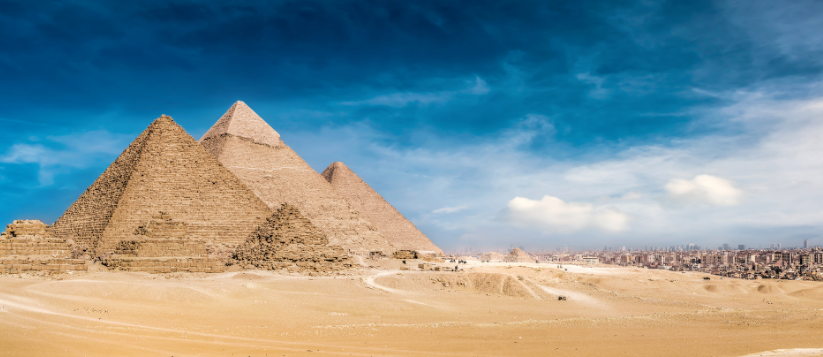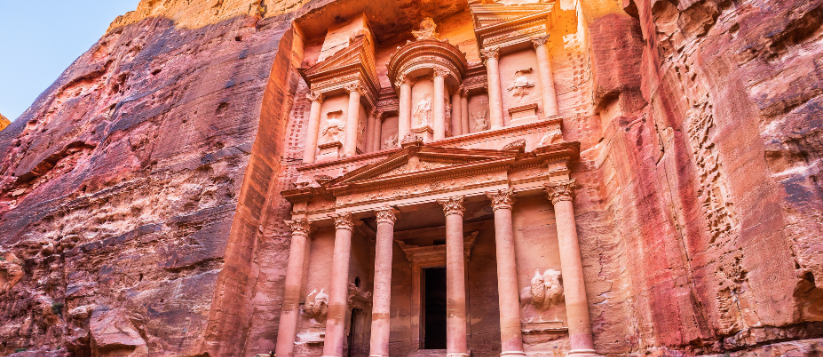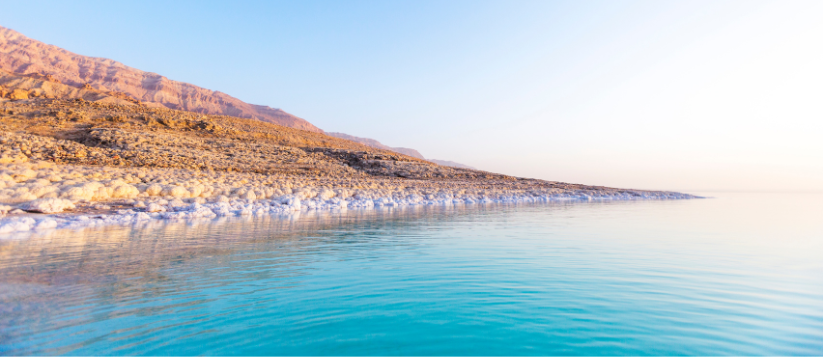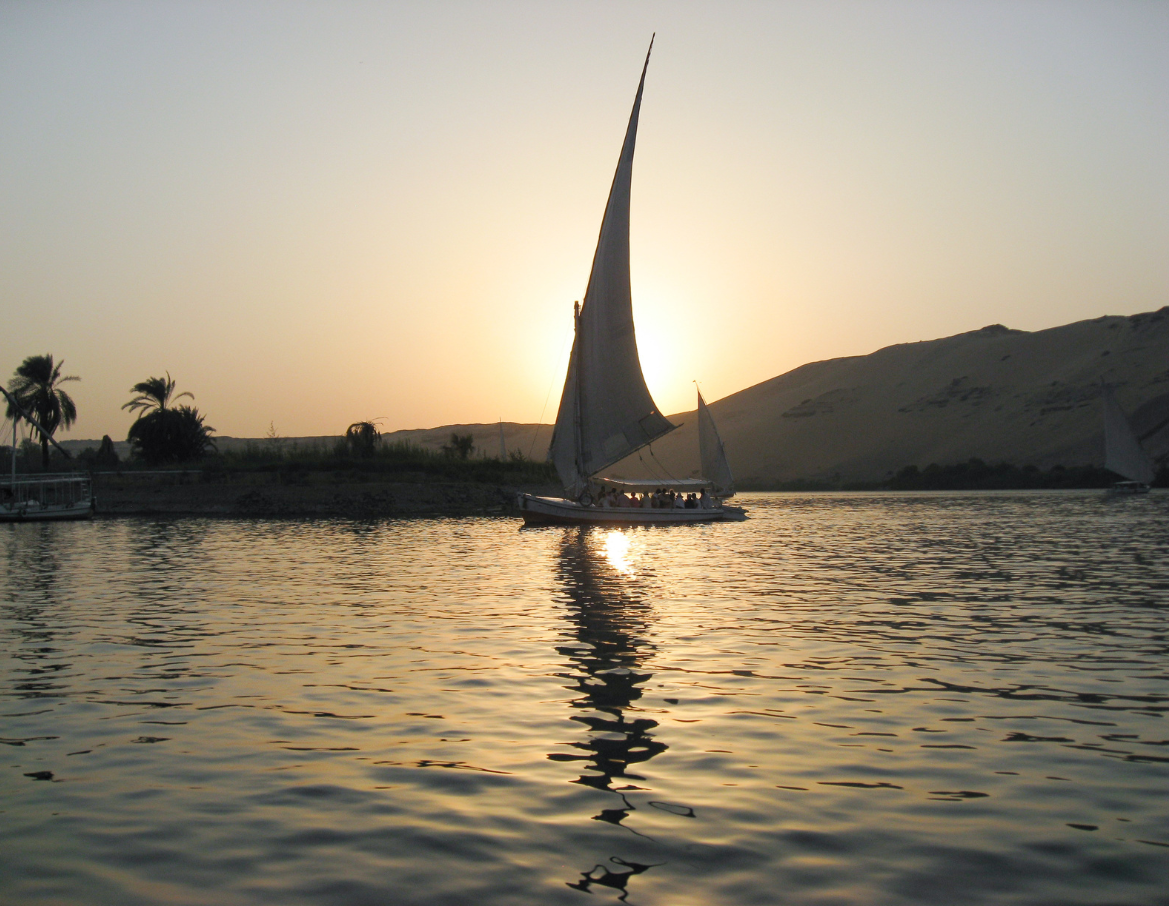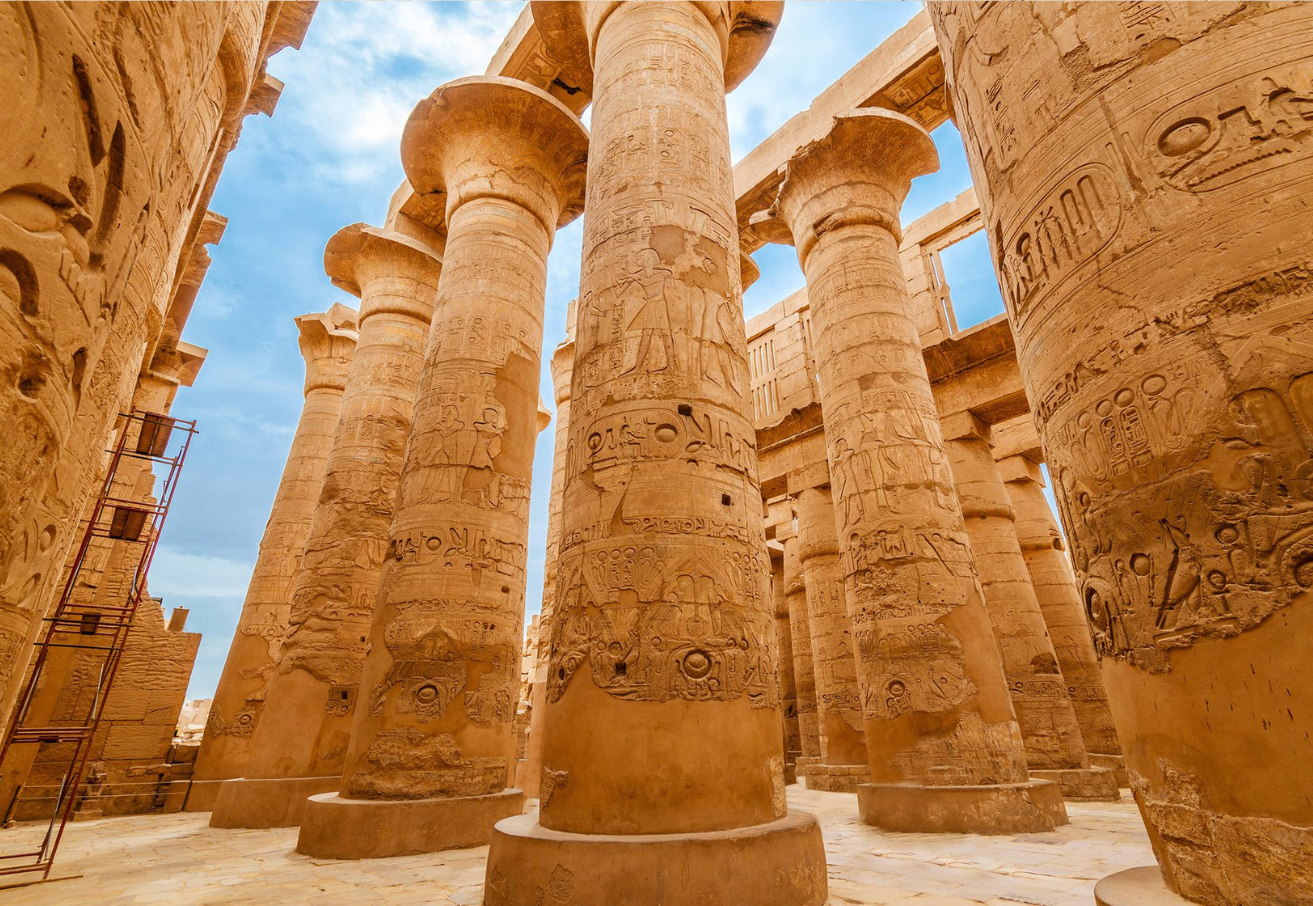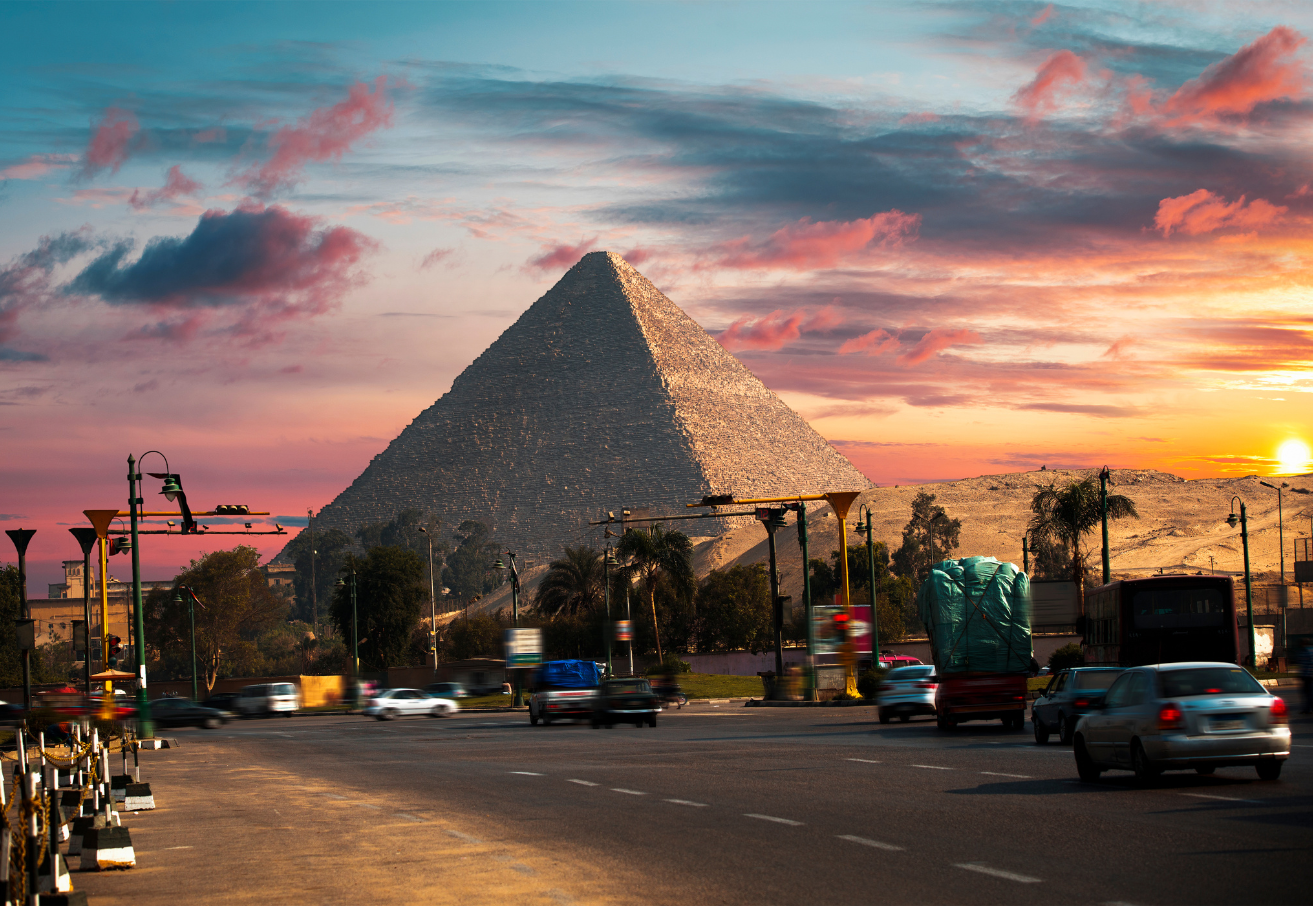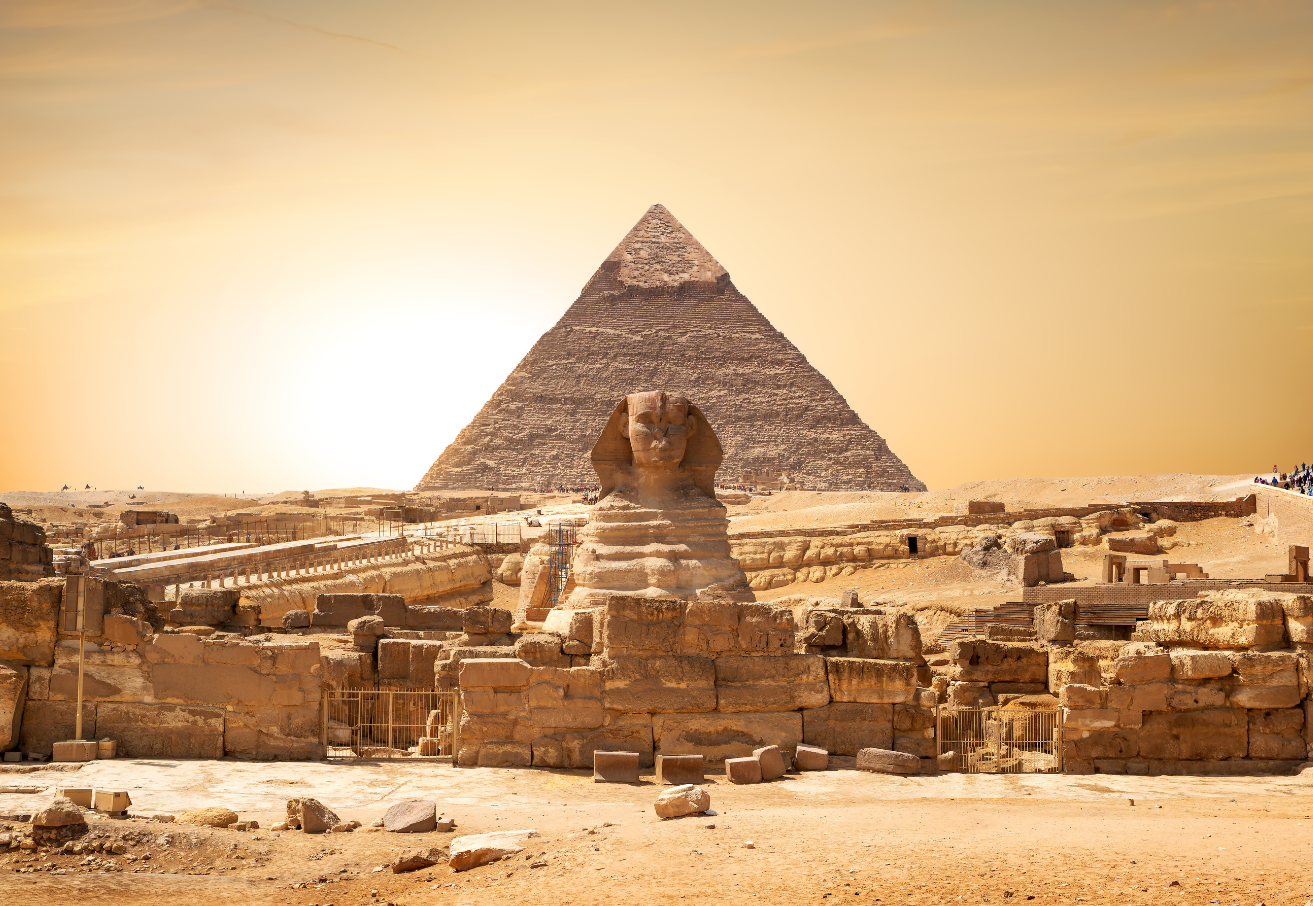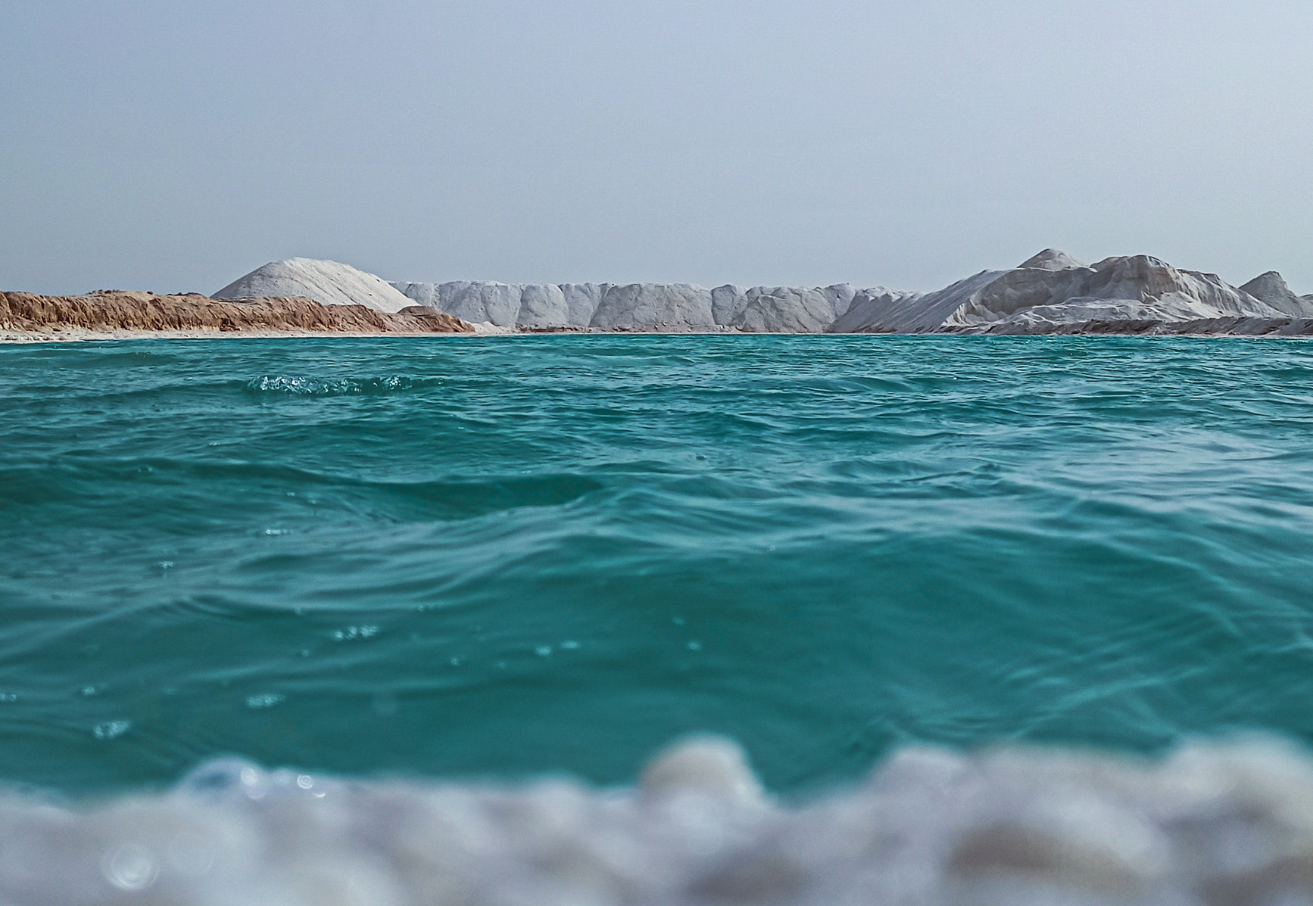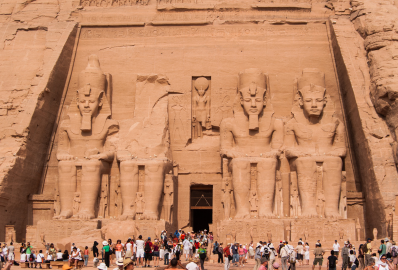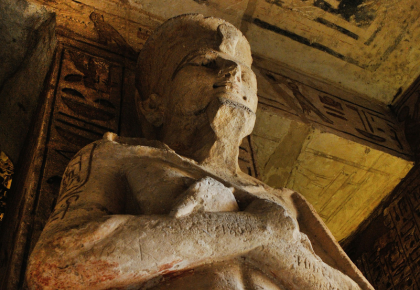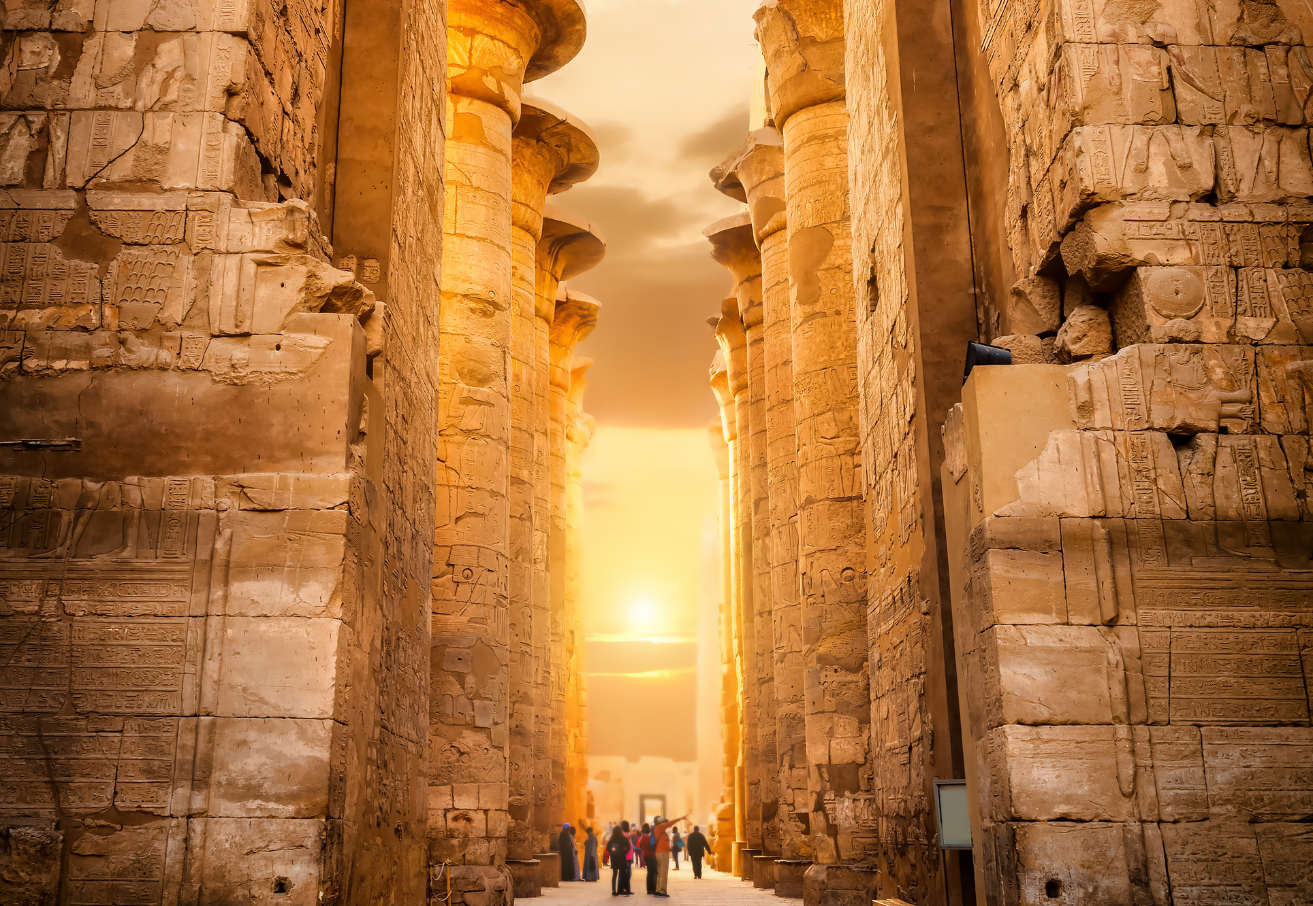NABATEANS & NUBIANS
During the initial phase of this journey, we embark on an exploration of the marvels of Egypt. Our itinerary encompasses Cairo, the Nile Valley, and the Red Sea at Hurghada. We commence our journey with visits to the renowned Pyramids and Sphinx at Giza, where our knowledgeable local Egyptologist guides delve into the rich history of ancient Pharaohs and the development of pyramid construction. While in Cairo, we also make a stop at the expansive Egyptian Museum, housing a treasure trove of ancient artifacts, mummies, and the famed King Tutankhamun exhibition.
Subsequently, we embark on an overnight sleeper train, venturing southward into Upper Egypt and arriving in Aswan the following morning. Aswan boasts one of the most picturesque stretches of the Nile, and we partake in a boat excursion to the exquisite Philae temple situated on a beautiful island. Additionally, there is an optional opportunity to explore the remarkable temples constructed by Ramses II at Abu Simbel, which were meticulously disassembled and relocated when Lake Nasser was flooded.
Our next leg of the journey unfolds on the Nile as we enjoy a leisurely overnight river cruise aboard a traditional Nile felucca sailboat, accompanied by our amiable Nubian crew. This serves as a delightful interlude, allowing for relaxation and the chance to observe the tranquil life along the Nile’s banks. After disembarking, we make a visit to the Edfu temple en route to Luxor, often dubbed the world’s greatest open-air museum. In Luxor, we explore both the east bank of the river, which features the expansive temple complex at Karnak and the illuminated Luxor temple at night, and the west bank of the Nile, where we explore the tombs in the Valley of the Kings, Queen Hatchepsut temple, Deir El-Medina (the valley of artisans), and the Colossi of Memnon. For those seeking an extraordinary experience, a hot air balloon flight is available as well.
Following a final night in Cairo, our journey takes us beneath the Suez Canal into the Peninsula, culminating in the picturesque and artistic resort town of Dahab. Here, we will spend three nights, offering you the choice to either unwind or embark on further exploration through our optional tours to Ras Abu Galom, the Blue Hole, Coloured Canyon, or even embark on a hike up Mount Sinai.
The second portion of our expedition commences with a ferry ride from Taba to the Jordanian Red Sea resort of Aqaba. From there, we continue our journey by road, immersing ourselves in the breathtaking desert landscapes of Wadi Rum, where we will spend the night in a comfortable Bedouin camp nestled against towering cliffs. The subsequent day entails a thrilling jeep safari across sand dunes and mesmerizing rock bridges, followed by an opportunity to interact with a local Bedouin shepherd, gaining insights into their nomadic way of life and desert animal care practices. Our journey then leads us to Jordan’s crowning jewel, the awe-inspiring lost city of Petra. Here, a guided tour awaits, along with free time for hiking to the Monastery and High Place of Sacrifice, offering breathtaking vistas.
Continuing northward, our next destination is Wadi Mujib, where we will engage in a water hike through the canyons of the Siq Trail. Following a day of adventure, we will have the opportunity to unwind along the shores of the Dead Sea, where you can float in the buoyant waters or indulge in a spa treatment at your hotel. The concluding stops of this tour introduce you to the historical sites of Madaba, Mount Nebo, and Jerash.
- 11 nights in 3, 4 & 5-star hotels
- 1 night on a felucca sailboat with the option to upgrade to a hotel
- 2 nights aboard a sleeper train from Cairo to Aswan and Luxor to Cairo (flight & hotel upgrade available)
- 1 night in a comfortable tent at a Bedouin camp in Wadi Rum
- A 24-hour airport arrival and departure transfer service
- All transport and transfers in private AC vehicles
- Sightseeing tours as detailed in the itinerary
- 4×4 jeep safari and a Bedouin experience in Wadi Rum
- English-speaking guide tour in Jordan
- International Ferry voyage from Taba, Egypt, to Aqaba, Jordan
- The expertise of local Egyptologist guides for all sightseeing excursions
- Meals as indicated in the itinerary
- International flights (available upon inquiry)
- Egypt visa fees (available upon arrival for most nationalities, US$25)
- Jordan Visa fees (free as part of the Jordan Pass)
- Egypt Entrance fees to sites visited (allow approx. US$85)
- Jordan Entrance fees (included in a discounted package available in advance through the Jordan Pass, JD70)
- Tipping/Gratuity
- Travel insurance.
- Meals not mentioned in the inclusions.
- Hotel gala dinners on 24 and/or 31 Dec (budget up to $180 p/p)
- Any personal expenses such as drinks, laundry, etc
- Additional activities or unmentioned items.
Upon arrival at Cairo airport, we will meet you and assist you with visa formalities and luggage collection, then transfer you to your hotel. Our rep will help you settle in, then the rest of the day is free at your leisure.
For nights prior to day one of the tour, accommodation can be arranged for. We recommend the Crowne Plaza West Cairo, Marriot Mena House or GEM Plaza.
Today, you take your first steps towards a new adventure… Board your flight to Cairo International Airport where we will be waiting for you just before customs for any assistance needed before we transfer you to your chosen hotel to settle in and relax.
Overnight : Cairo Hotel
No Meals
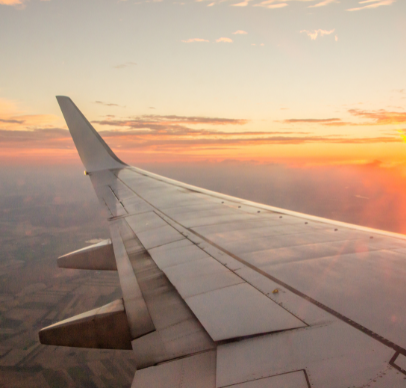
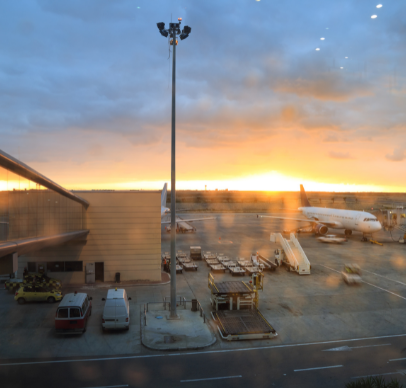
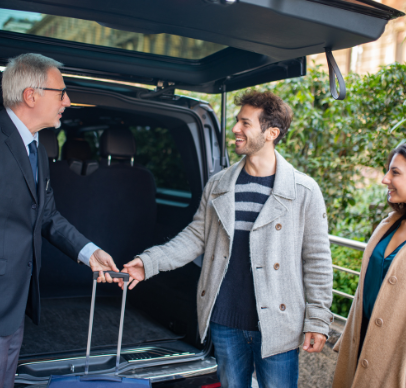
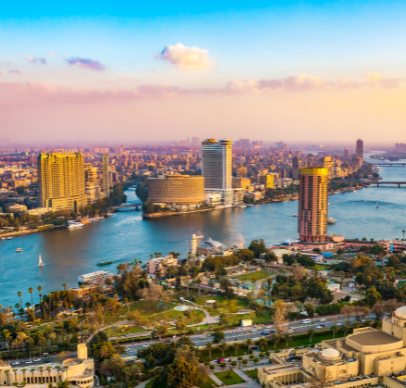
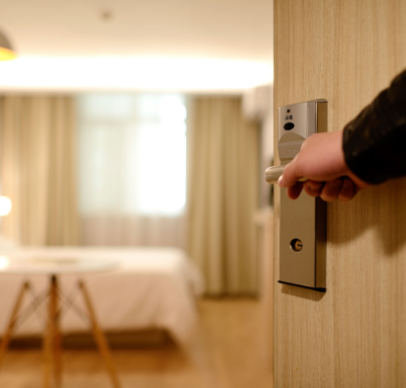
Our journey in Egypt begins with a visit to Giza, where you’ll explore the Sphinx and the iconic pyramids. Accompanied by a knowledgeable local Egyptologist guide, you’ll learn about Egyptian history and culture. The Great Pyramid of Khufu, standing at 500 feet tall and 750 feet wide at its base, is a remarkable man-made structure constructed from massive stone blocks. You’ll also have the chance to enter the pyramids if you wish, though your guide can’t join you due to limited tickets. Afterward, we’ll visit the Egyptian Museum, home to the famous Tutankhamun exhibit and a vast collection of ancient Egyptian artifacts. In the evening, we’ll transfer to the station for an overnight sleeper train journey to Aswan, where you’ll enjoy dinner in your private twin-berth compartments before a restful night’s sleep.
OVERNIGHT: Sleeper train
MEALS: Breakfast, Dinner
EXTRAS: Cairo to Aswan flight upgrade
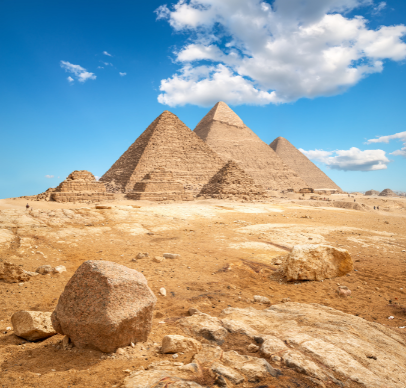
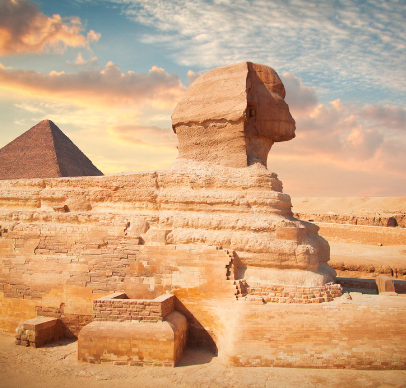
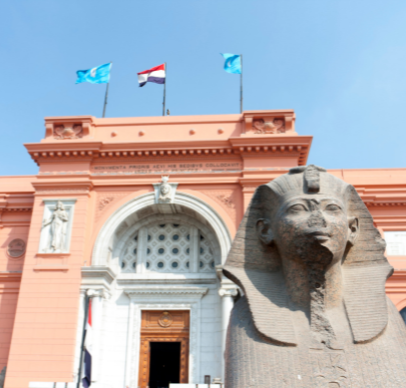
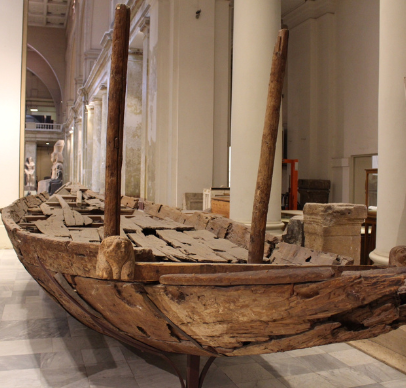

In the morning, we arrive in Aswan and check into our hotel overlooking the picturesque Nile River, adorned with lush green islands and bustling feluccas. Aswan, a vibrant blend of African and Middle Eastern cultures, invites exploration through its lively markets. This region is also part of the ancient Nubian territory, spanning southern Egypt and northern Sudan along the Nile. Today, many Nubian descendants reside here, and we’ll have the chance to visit a local Nubian village to witness their vibrant homes, modest lifestyle, and savor a traditional lunch.
In the afternoon, our journey continues with a visit to the enchanting Temple of Philae, an island sanctuary dedicated to Isis, gracefully rescued from the waters of Lake Nasser. We access it via a delightful boat ride. As evening falls, you’re free to explore Aswan’s spice and general markets, or stroll along the popular Nile Corniche. An optional camel ride across the sands on the opposite bank of the Nile to St. Simeon’s Monastery is also available. For those who have chosen the Abu Simbel option, an early bedtime is recommended tonight in preparation for an early start tomorrow morning.
OVERNIGHT: Aswan 5 star hotel
MEALS: Breakfast, Lunch
EXTRAS: None
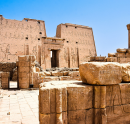
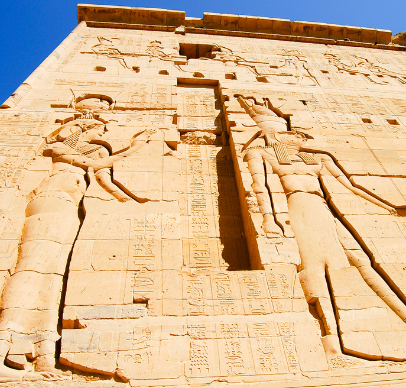
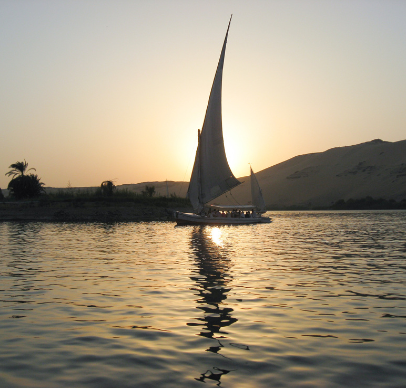

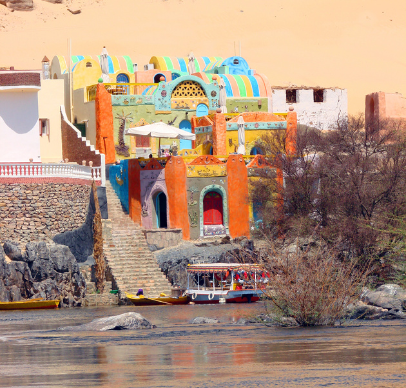
This morning, you have the option to visit the UNESCO World Heritage site of Abu Simbel, home to the temples built by Ramses II. We depart early to witness the sunrise over these remarkable temples. If you choose not to visit Abu Simbel, your morning is free.
At lunchtime, we embark on our traditional Nile felucca for an afternoon sail down the Nile. Sailing on a felucca is a delightful way to experience Egypt, offering a glimpse of local rural life along the riverbanks. Our skilled Nubian crew will handle the boat, provide entertainment, and prepare meals for you. Throughout the day, our separate facilities boat will join us, equipped with clean toilets, showers, and a hygienic kitchen. Tonight, you’ll sleep on the deck of the felucca, with mattresses, blankets, and mosquito nets provided. While this is a fun and basic experience, we offer an optional upgrade for those seeking more comfort to spend the night back at the Aswan hotel, rejoining the group the following morning.
OVERNIGHT: On board felucca
MEALS: Breakfast, Dinner, Lunch
EXTRAS: Abu Simbel overland / Upgrade from felucca to hotel in Aswan
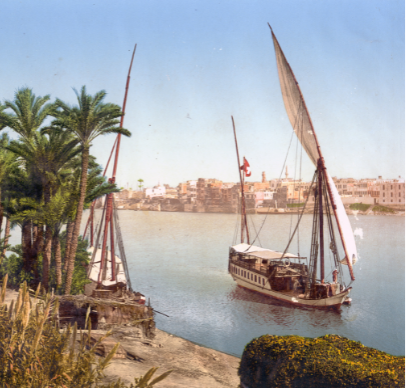

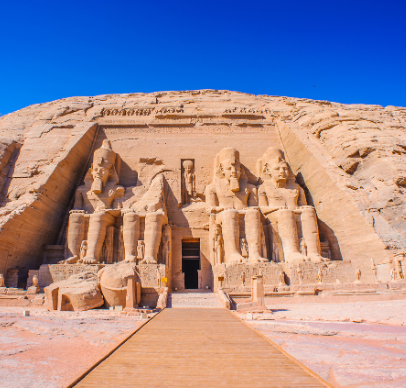
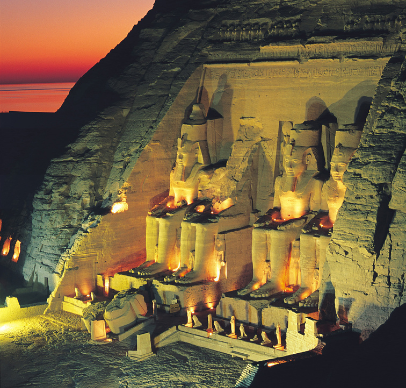
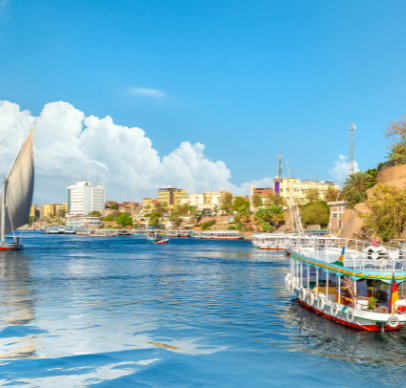
After a satisfying breakfast on-board, we say goodbye to our felucca crew and proceed to visit the nearby Edfu Temple before continuing north towards Luxor. Luxor, built upon the ancient site of Thebes, is renowned for housing the largest concentration of ancient ruins in the Nile Valley, if not the world. On the west bank of the Nile, you’ll find the City of the Dead, featuring mortuary temples and rock-hewn tombs, while on the east bank lie the captivating Temples of Luxor and Karnak.
Upon our arrival in Luxor, we check into a luxurious 5-star hotel on the Nile’s banks, allowing you the opportunity to unwind and enjoy the afternoon by the pool. Later in the evening, we embark on a guided walking tour of the enchanting Luxor Temple, nestled right in the heart of the city and beautifully illuminated at night.
OVERNIGHT: Luxor 5-star hotel
MEALS: Breakfast
EXTRAS: None

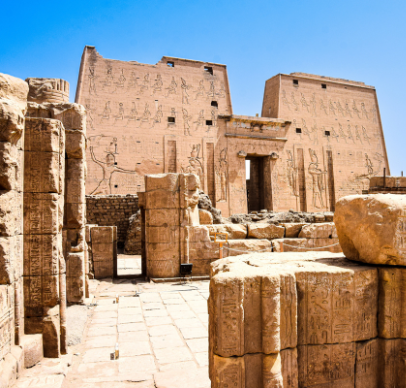

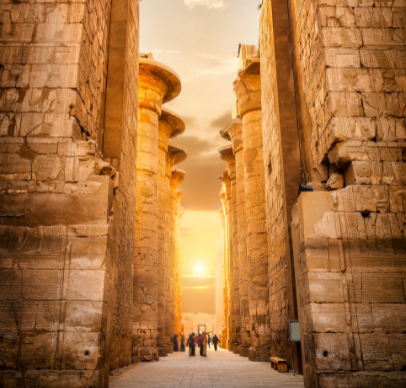
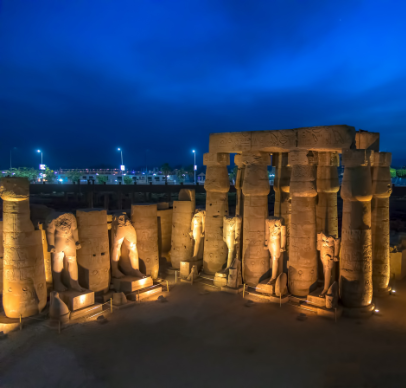
Early this morning, we cross the Nile to embark on our exploration of Luxor’s West Bank. This area is renowned for the Valley of the Kings, where ancient burial tombs continue to unveil their secrets, making it one of the world’s most significant archaeological sites. Our tour includes visits to several Pharaonic tombs, the Temple of Queen Hatchepsut, Deir-el-Medina (known as the Valley of the Craftsmen), and the impressive Colossi of Memnon.
For those seeking an extraordinary experience, a breathtaking hot air balloon flight over the West Bank of the Nile is available this morning, offering the chance to witness the sunrise from high above (please note, an early start is necessary to catch the sunrise as the balloon ascends).
Following lunch, we’ll explore the vast temple complex of Karnak, once the religious epicenter of Thebes and Upper Egypt. It was connected to Luxor by an extensive avenue, lined with sphinxes, and was also linked to the Nile via a canal used for the sacred boats of the god Amun. Upon entering through a smaller sphinx-lined avenue, constructed by Ramesses II, you’ll encounter the immense pylon entrance. Inside the enormous courtyard stand three chapels dedicated to the gods Amun, Khous, and Mut. The remarkable Hypostyle Hall boasts 134 towering columns, each intricately carved with scenes of gods, pharaohs, and adorned with hieroglyphic inscriptions on the walls.
OVERNIGHT: Luxor 5-star hotel
MEALS: Breakfast
EXTRAS: Hot air balloon in Luxor
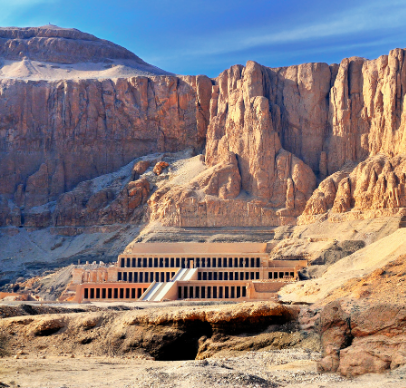
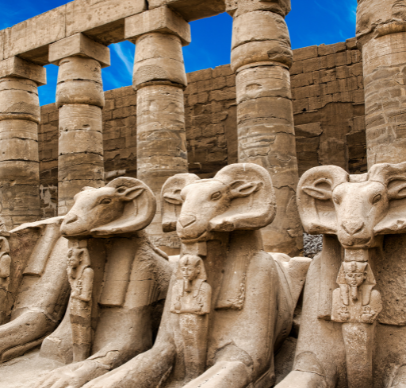
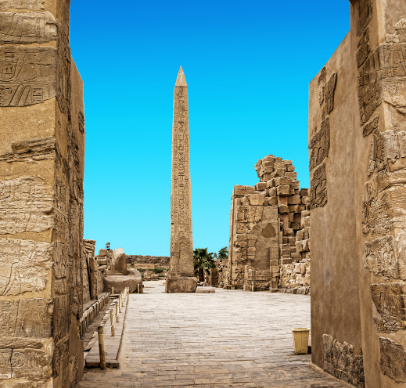
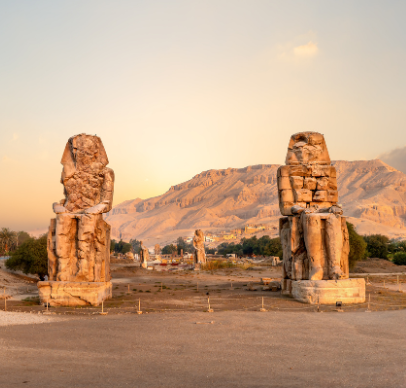
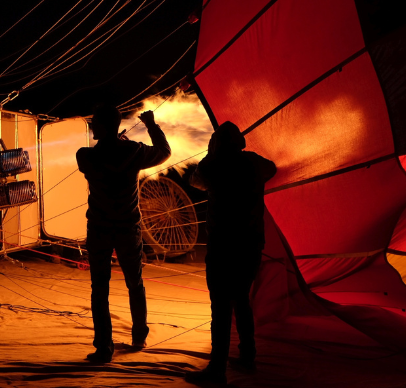
We arrive back into Cairo this morning and transfer to our hotel. Most of the day is then free to explore Cairo as you choose or you may take an optional tour. These include a city tour in Cairo which visits Coptic Cairo, the Citadel and Mohamed Ali Mosque, or a half day tour to Saqqara, Dashour and Memphis to learn more about the history and evolution of pyramid building. Another full day option further afield includes a trip into the desert outside Cairo to see the World Heritage Site of the Valley of the Whales at Wadi Rayan.
In the late afternoon we take a guided walk through the back streets and bazaars in central Cairo. We’ll walk through the huge Bab al-Futuh gateway and explore streets dedicated to metalwork, spices, pottery, fabric, jewelery and anything else you can imagine as we gradually enter the more touristy Khan-el-Khalili bazaar. We’ll have time for a break to try some tea and a shisha pipe and perhaps enjoy an early dinner of Egypt’s unofficial national dish, Kushari before returning to our hotel.
OVERNIGHT: Cairo hotel
MEALS: Breakfast
EXTRAS:
Cairo city tour
Wadi Rayan day tour (Valley of the Whales)
Saqqara, Dashour and Memphis
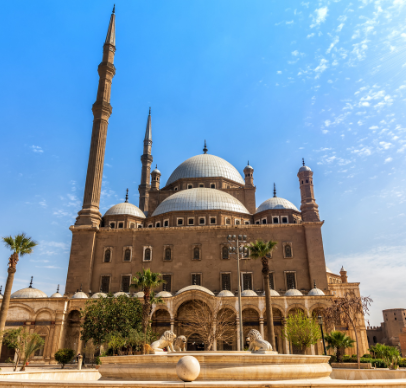
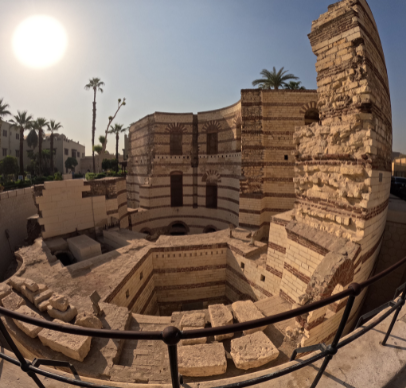



This morning, we will commence our journey from Cairo to Dahab, passing under the Suez Canal and traveling through the Sinai region. If you prefer air travel, we also offer an optional upgrade for a flight from Cairo to Sharm el Sheikh. The remainder of the afternoon is yours to unwind by the hotel pool or beach, or you can venture into Assalah to immerse yourself in the unique ambiance of this welcoming village.
The name “Dahab” in Arabic translates to “gold” and alludes to the fine golden sands that adorn the beaches on either side of the main bay. The adjacent Bedouin village, Assalah, graces the shores of Ghazala Bay and comprises a blend of campsites, hotels, restaurants, shops, dive centers, and bars, accentuated with palm trees. It is within Assalah that you’ll encounter the Bohemian atmosphere that makes Dahab so distinctive (most hotels offer shuttle services, and local taxi fares are quite affordable). The evenings present an ideal opportunity to savor a variety of restaurants and relish the superb local seafood.
OVERNIGHT: Dahab hotel
MEALS: Breakfast
EXTRAS: None





Today offers you the freedom to explore the abundant attractions in Dahab and its surroundings. You may choose to engage in more snorkeling or experience an introductory scuba dive. Alternatively, you can unwind at one of the many beachfront restaurants or bask in the sun on the beach. If you’re interested in discovering more of the area’s offerings, day trips are accessible to the Ras Abu Galum protected area, where you’ll have the opportunity to closely encounter the renowned marine life of this region. Additional options include visits to the Blue Hole, Coloured and White Canyons, Mount Sinai, St. Catherine’s Monastery, and even an evening with the Bedouins in the desert.
OVERNIGHT: Dahab hotel
MEALS: Breakfast
EXTRAS: None

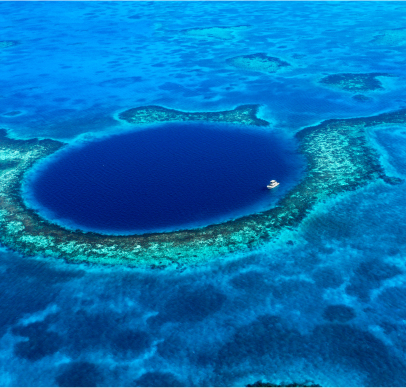



This morning, we’ll journey from Dahab to Taba Heights, which is approximately a 2-hour drive, to catch a ferry to Aqaba, a journey that takes about 1 hour. Once we arrive in Jordan and complete the necessary passport procedures, we will head into the breathtaking desert landscapes of Wadi Rum. There, we’ll be warmly welcomed by hospitable Bedouin hosts at a comfortable camp nestled below towering rocks and cliffs. We’ll spend the evening and night unwinding at the camp, savoring a delightful, traditional Jordanian meal that often includes the choice of ‘Zarb,’ a Jordanian dish typically featuring lamb and chicken cooked in the Bedouin tradition underground. Evening activities may comprise a camel ride at sunset or stargazing with telescopes.
OVERNIGHT: Wadi Rum Bedouin Camp
MEALS: Breakfast, Dinner
EXTRAS: None
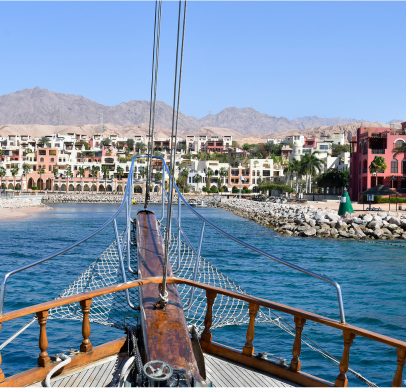

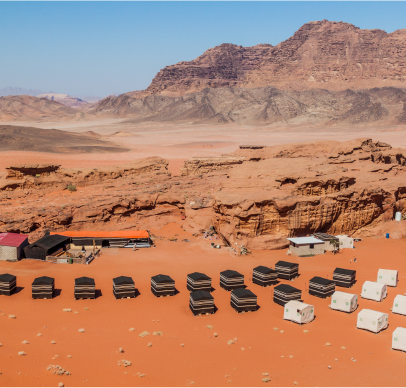
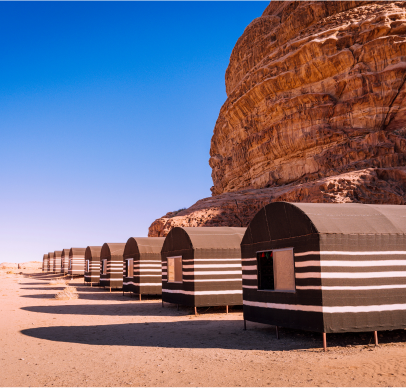

Following breakfast at the camp, we embark on an adventurous jeep safari, traversing the sandy terrain and admiring the towering ‘jebels’ of Wadi Rum. Along the way, we explore sand dunes and fascinating rock formations, including a stunning rock bridge. We engage in local activities inspired by Bedouin traditions, accompanying a shepherd with his flock to a Bedouin tent. Here, we can participate in and learn about various traditional Bedouin activities, such as shearing sheep and goats, milking, grinding grains, making bread, and roasting coffee. After immersing ourselves in nomadic Bedouin life, we return by jeep to the camp and then proceed to Petra. En route to Petra, we’ll visit the Petra Bakery to witness locals making traditional bread and enjoy a light lunch. As an option, you can choose a captivating introduction to Petra with the Petra by Night tour, walking through the Siq to the Treasury, illuminated by the warm glow of hundreds of candles.
OVERNIGHT: Petra hotel
MEALS:Breakfast, Lunch
EXTRAS: None





Today, our focus is on the exploration of Petra, the former capital of the Nabataean empire until it fell under Roman control in 106 AD. This incredible city remained hidden from the world’s view for many years, known only to the local Bedouin people, until it was rediscovered in 1812 by the Swiss explorer Johann Ludwig Burckhardt. Located at the edge of the Wadi Aruba desert, Petra is surrounded by imposing canyon walls and towering hills, accessible only through a narrow rock cleft known as the Siq. Most of Petra’s structures were carved into the multicolored sandstone cliffs, and it has now become one of Jordan’s premier tourist destinations, with the Jordanian Government actively supporting its development.
Today, we have ample time to explore this ancient city, taking a unique back-route starting from Little Petra. Before commencing our journey into Petra, we’ll visit the equally fascinating site of Little Petra, or Siq al-Barid. From there, a short jeep ride will take us to the beginning of the mountain trail connecting Little Petra to the Monastery and the primary Petra site.
The back-route into Petra offers a less crowded and intriguing way to experience the site, with the added bonus of stunning mountain vistas overlooking the Holy Land. This route covers the same monuments as the standard route, including Little Petra and the Monastery. The journey begins with an ascent along rock-carved steps and paths along the mountain’s edge. After reaching a plateau, you can pause for refreshments at a small café with excellent photo opportunities. The path continues, and you’ll catch a glimpse of ‘Ad-Deir’ (the Monastery), providing a well-deserved break before descending into Petra’s main site.
As you enter Petra, the valley unfolds, revealing tombs carved into the rock on both sides, remnants of a Roman amphitheater, and colonnaded streets. Our journey through Petra will ultimately lead us to The Khazneh (Treasury), one of the most iconic structures in Petra.
While the back-route hike into Petra is not overly challenging, it does involve multiple ascents and descents and requires walking on sandy terrain within the main site of Petra for several hours. This route is suitable for those comfortable with this terrain and able to hike for a minimum of 2-3 hours to reach the Monastery and additional hours while exploring the main site of Petra.
For individuals with reduced mobility or concerns about the distance, horse carriages are available for approximately 20JD (USD 28) for an agreed-upon time (only within the main site of Petra, not on the hiking route). Riding the horses provided is not recommended.
OVERNIGHT: Petra hotel
MEALS: Breakfast
EXTRAS: None

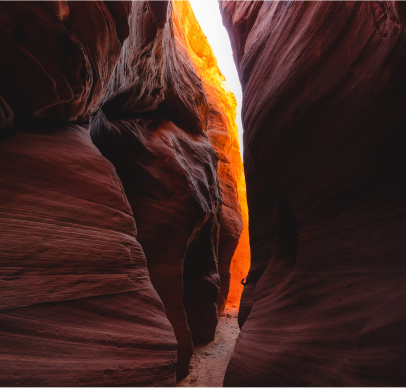
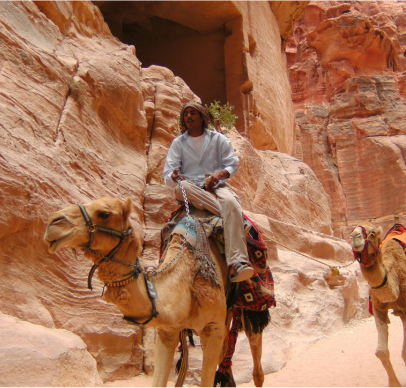


Following breakfast in Petra, we’ll journey north along the Dead Sea road to Wadi Mujib. Here, we’ll embark on an exhilarating hike through the Siq Trail, with splendid views of the Salt Flats at the Dead Sea’s southern end. Upon reaching the Wadi Mujib visitor center, there’s a lunch break (not included) before we enter the water and commence the hike.
Descending into the gorge within the Wadi Mujib Nature Reserve, we’ll explore the shallow waters (available from April to October) and ascend small waterfalls with conveniently placed steps. The hike culminates at a large waterfall, typically lasting 2 to 3 hours in total. We strongly recommend bringing a dry bag to protect your camera or phone from getting wet, as well as water shoes. Dry bags are available for around $7.00 at the visitor center, and you can purchase water shoes for $7.00.
Please note that from November to March, when the Siq Trail is inaccessible, we’ll visit the Baptism site in Bethany, believed to be the biblical ‘Bethany-beyond-the-Jordan,’ where John baptized Jesus. This site includes ancient churches, caves, and pools from Roman and Byzantine eras, visited by Pope John Paul II and Pope Benedict XVI. An electric minibus will take you to three sites: Tell Mar Elias, the Baptism Pools, and John the Baptist’s Church.
After a day filled with activities, we’ll make our way to our resort on the Dead Sea’s shores, where you’ll have free time to enjoy a unique “swim” in the highly buoyant waters and relax by the hotel pool. Don’t forget to bring a newspaper or magazine for that iconic Dead Sea photo!
OVERNIGHT: Dead Sea hotel
MEALS: Breakfast
EXTRAS: None

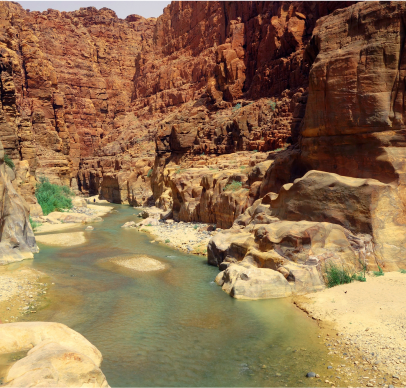


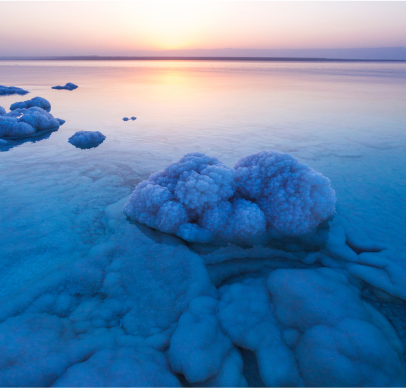
After a peaceful night’s rest, our journey takes us to nearby Madaba, where we’ll be captivated by Byzantine mosaics, including the ‘Madaba Map,’ the oldest preserved map of the Holy Land. Moving on from Madaba, we’ll head to Mount Nebo, the place where the prophet Moses gazed upon the Promised Land and where he is also buried. On most clear days, you’ll enjoy panoramic views that extend all the way to Jericho and beyond.
Our last stop of the day is the ancient city of Jerash, renowned for its status as one of the largest and best-preserved Greco-Roman cities outside of Europe. In Jerash, we’ll explore the Forum, wander through its Roman colonnaded streets, admire the Nymphaeum, and visit the Temple of Artemis, situated on one of the city’s highest points.
To conclude our day, we’ll return to Amman, where we’ll spend our final night in Jordan.
OVERNIGHT: Amman hotel
MEALS: Breakfast
EXTRAS: None
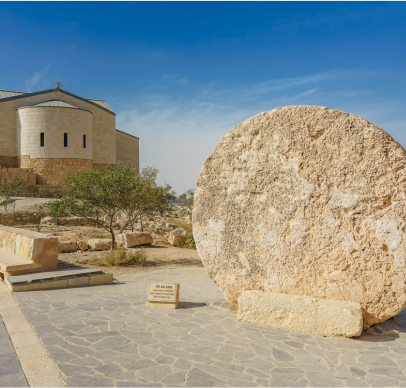
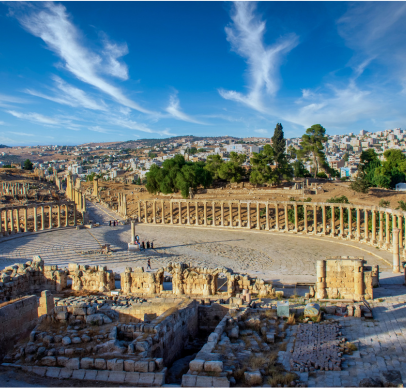



Your day in Amman is at your leisure until we arrange transportation from your hotel to the airport for your departure. If you have a late afternoon or evening flight, additional sightseeing tours are an option, such as a visit to the Baptism Site at Bethany on the Jordan River.
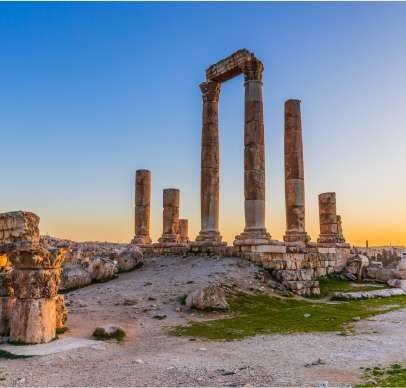
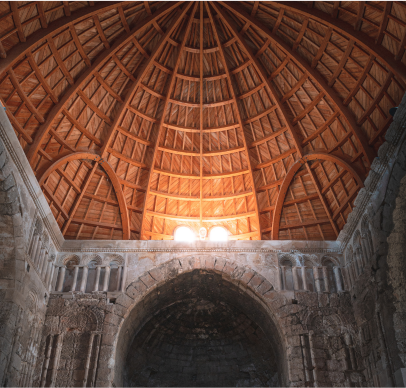



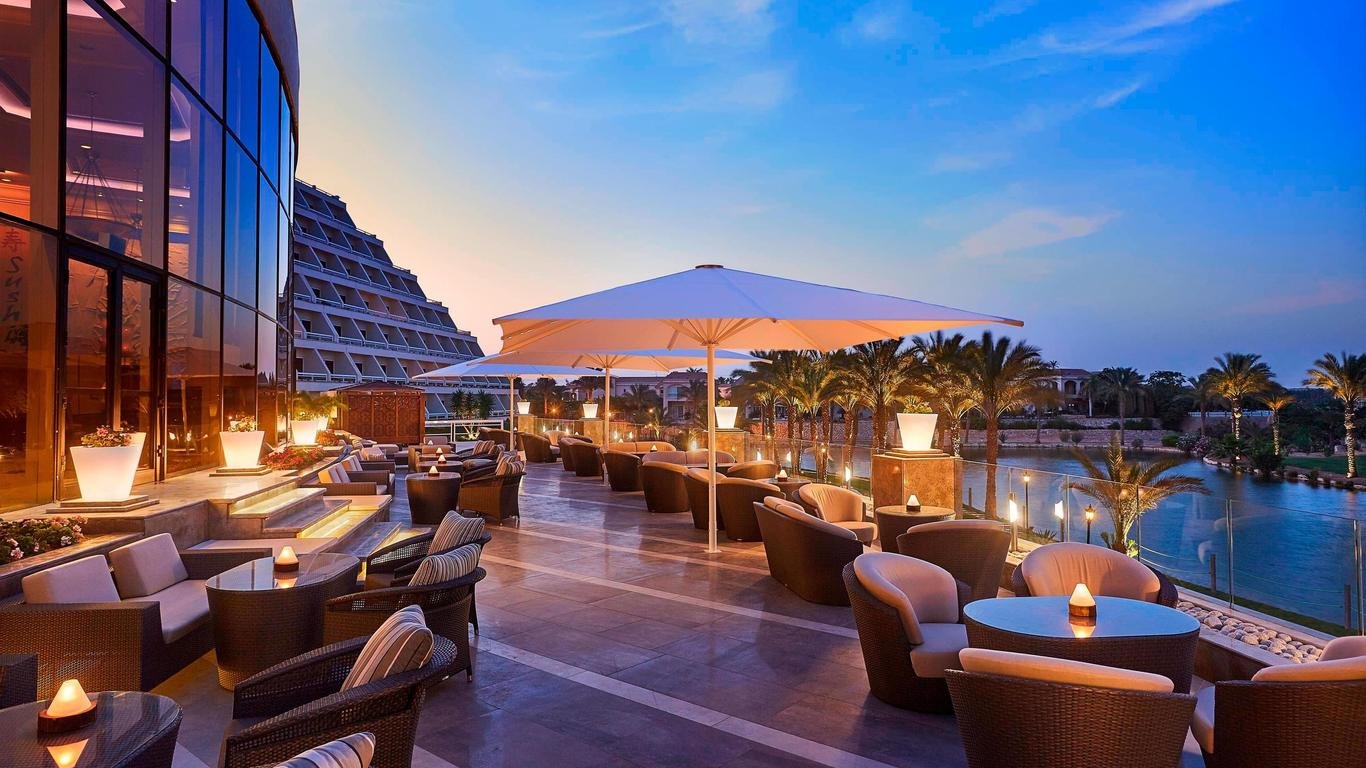
Cairo Marriott Hotel & Omar Khayyam Casino
Originally constructed as a visitor’s palace, Cairo Marriott Hotel & Omar Khayyam Casino has provided guests the royal treatment for decades. Modern guestrooms offer luxury bedding, free Wi-Fi and 24-hour room service. Many have balconies with garden, city or Nile views. Luxury hotel suites feature generous layouts, kitchenettes and fireplaces. perks like free breakfast, afternoon tea and dessert. Enjoy on-site amenities including a 24-hour gym, outdoor lap pool, a spa and an elegant casino. Several of our 14 dining options are set in our lush gardens. Wedding and conference planners appreciate our hotel’s versatile and unique event venues and proximity to some of the world’s most famous sites, including the Pyramids, Sphinx and Cairo Tower. Be transported to the Egypt of 1869 when you step into the lobby of our 5-star luxury hotel in downtown Cairo. Visit Cairo Marriott Hotel & Omar Khayyam Casino, where you’ll be treated like royalty.
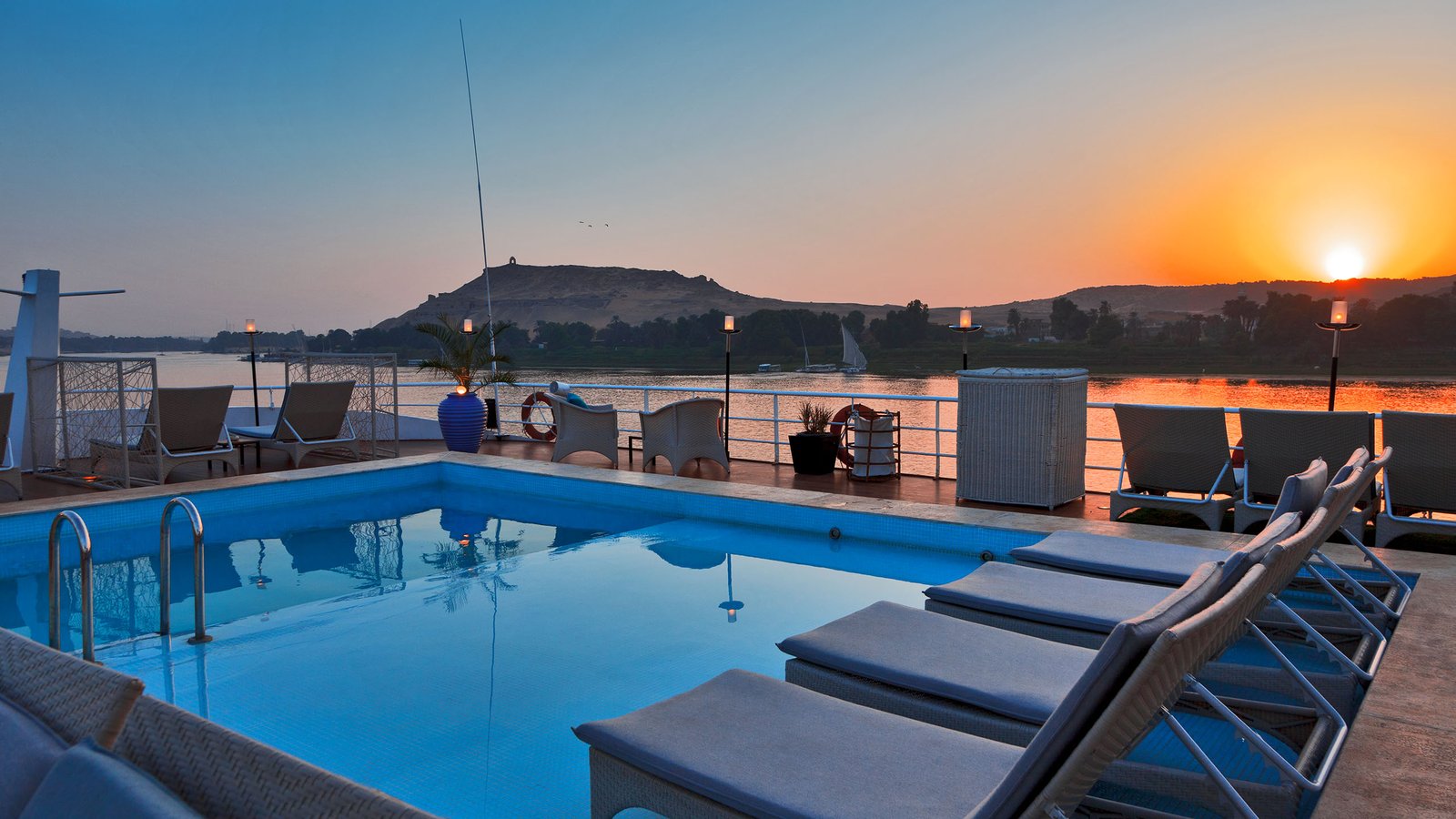
MS/ Iberotel Crowne Emperor
The Iberotel Crown Emperor is the second largest ship in the Travcotel fleet. This impressive Five-star Deluxe Nile cruise liner carries travellers in supreme comfort, grace and style creating an atmosphere where your every wish is fulfilled. The ship’s, professional, friendly and experienced staff and crew deliver a personalized service that is second to none.
Split over five-deck levels, this majestic vessel offers the perfect environment in which you can comfortably relax and soak up the real Egyptian atmosphere. Enjoy a head-to-toe relaxation massage, top-up the tan on the enormous Sun deck or enjoy the nightly festivals of great fun and excellent food. You can still experience the ancient wonders of Pharaonic Egypt with stop-overs and optional visits to some of the most perfectly preserved temples and monuments in Luxor and Aswan.
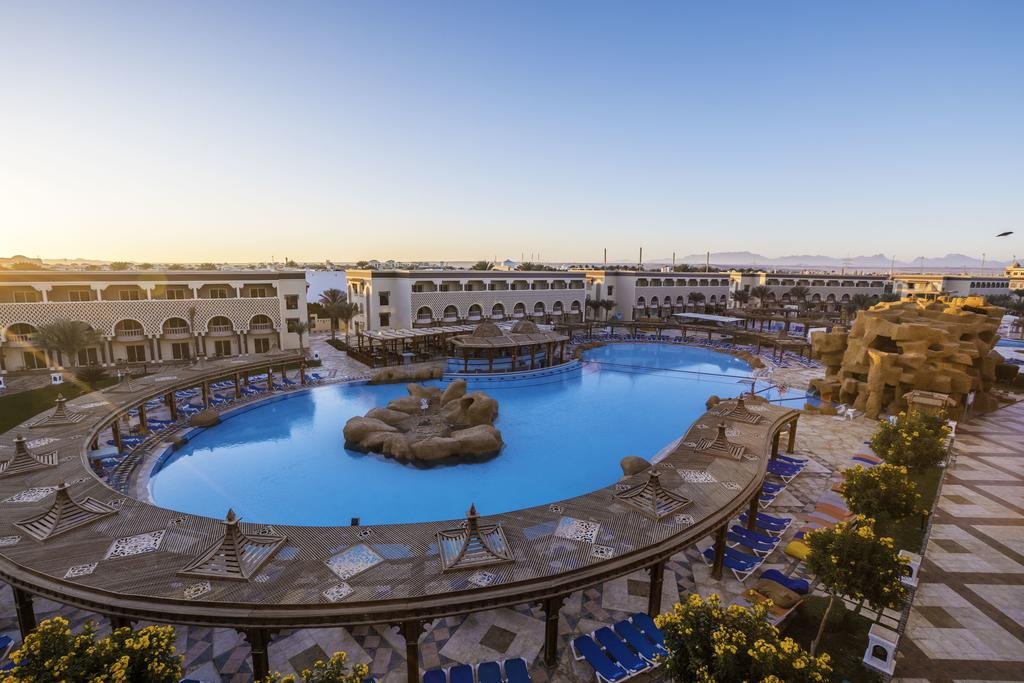
Mamlouk Palace Resort
Experience authentic Egyptian hospitality and a stunning oriental flair at Mamlouk Palace Resort with its special family friendly atmosphere and hotel facilities. The private sandy beach offers relaxing hours directly in front of the beautiful water of the Red Sea. Relish the art of noble treatment and atmosphere at Mamlouk Palace Resort.
Located 19km (20 min) to Hurghada Centre and 15km (16 min) to Hurghada International Airport, the Resort features a distinctive location.
Facilities (Private Beach -Restaurants -Bars – 24h Room Service –
Swimming Pool -Spa – Kids Club – Wifi – Special Needs Rooms)
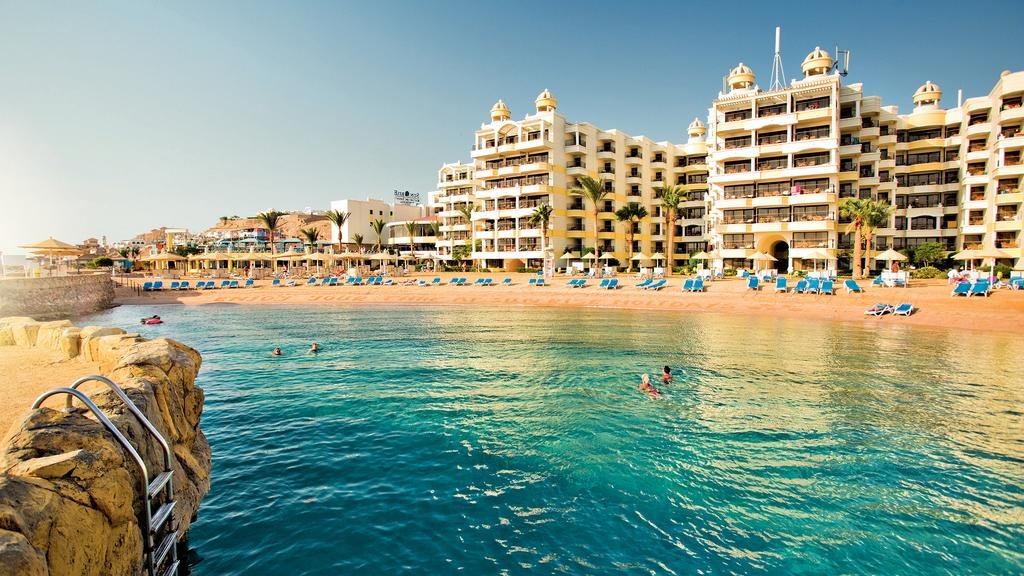
SUNRISE Holidays Resort (Adults Only)
SUNRISE Holidays Resort, the first Adults-Only Resort in Egypt, is situated on a private beach lagoon that enriches the rejuvenating holiday vacation with its idyllic sea view.
Located 500m (10 min) to Hurghada Centre and 9km (14 min) to Hurghada International Airport, the Resort offers the best of both worlds: enjoying a relaxing and revitalizing atmosphere as well as experiencing the exciting nightlife of Hurghada.

Sheraton Montazah Hotel
Sheraton Montazah Hotel welcomes you to Alexandria, Egypt with thoughtful service and an unparalleled location. Situated by the beach, our hotel is walking distance from Montazah Palace and Gardens; stroll the scenic Corniche or visit cultural attractions including the Royal Jewelry Museum. Gracefully designed rooms and suites feature our Sheraton Signature Sleep Experience and stunning views of the sea, the palace gardens or the Alexandria cityscape; additional amenities include private balconies, complimentary Wi-Fi and premium bath products. Take a swim in the outdoor pool, challenge yourself to a workout or relax on the beach and enjoy the warm Egyptian sunshine. Varied dining options at the hotel include a casual Italian restaurant with seasonal, locally-sourced offerings, as well as a stylish bar, a coffee house and more. If you’re planning an event in Egypt, our expansive venues can accommodate up to 700 guests; outdoor spaces on the beach or by the pool create a unique setting for social gatherings.
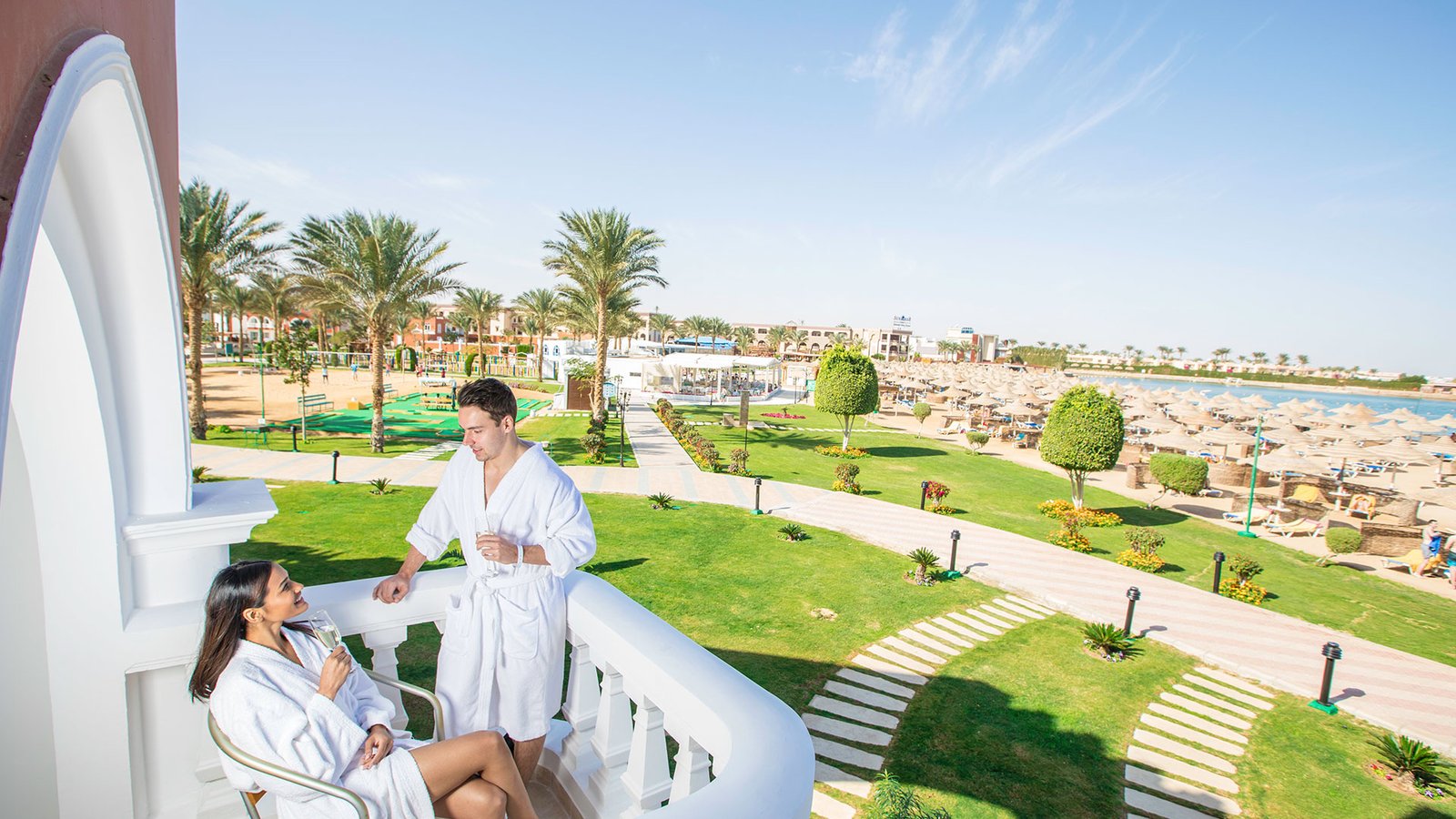
SUNRISE Garden Beach Resort -Select
Set on a private beach, this modern all-inclusive resort is 2 km from the giant sculptures at Sand City Hurghada and 10 km from bazaars in the Old Town of Sahl Hasheesh.
Bright rooms come with free Wi-Fi and flat-screen TVs, plus minibars and balconies/terraces. Family rooms and suites feature additional rooms. Kids age 11 and under (1 per room) stay at no extra cost with an adult.
Meals and drinks (included) are served in 12 bars and restaurants, among which are an Italian eatery and a beach bar. A water park features 8 water slides, and there’s a private sandy beach, a luxe spa and a gym.

Paradise Inn – Windsor Palace Hotel
Dating from 1906, this polished hotel overlooks a waterfront promenade. It’s a 6-minute walk from the Alexandria National Museum and 2 km from the modernist Library of Alexandria.
The antiques-filled rooms feature gilded walls and hand-decorated high ceilings, as well as free Wi-Fi and flat-screen TVs; most have private balconies with Mediterranean Sea views. Upgraded rooms include living areas, while suites add stately living rooms, and art from the hotel’s collection.
A restaurant adorned with frescoes serves high-end cuisine. There’s also a cafe with a terrace, which serves light fare.
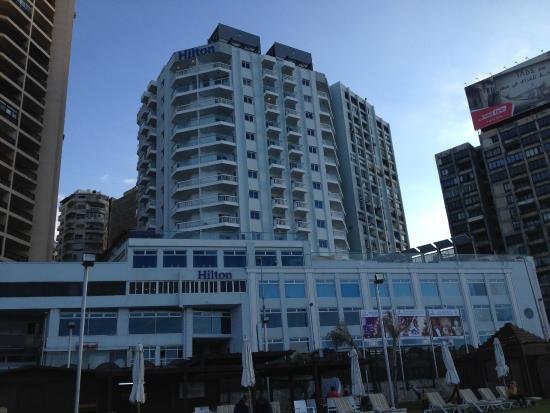
Hilton Alexandria Corniche
Overlooking the Mediterranean Sea and across the street from a private beach, this upmarket hotel is 3 km from the Royal Jewelry Museum.
The stylish rooms offer free Wi-Fi, flat-screen TVs and balconies. All also provide safes, minibars, and tea and coffeemaking facilities. Suites add living rooms and access to a lounge that serves breakfast. Room service is available.
There are chic French, Greek and Lebanese restaurants, plus open-air dining, a cigar bar and a trendy Asian fusion restaurant/nightclub. Other amenities include a rooftop infinity pool, a spa and a fitness room. Meeting and event space is available
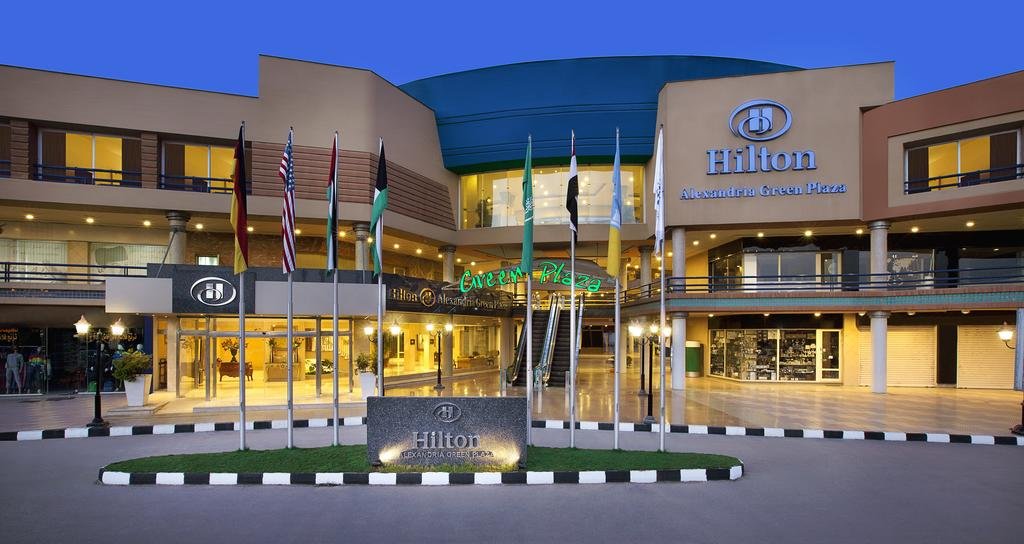
Hilton Alexandria Green Plaza
Set 3 km from Alexandria International Airport, this polished hotel in the Green Plaza shopping mall is 5 km from the Royal Jewelry Museum.
Refined rooms feature flat-screen TVs, seating areas and Wi-Fi, plus tea and coffeemakers. Club rooms and suites add access to a lounge with complimentary breakfast and drinks. Suites also have living areas. Room service is available.
Amenities consist of a spa, indoor and an outdoor pools, and a gym. There are multiple bars and dining options, including Indian and Italian restaurants. Event space is offered.
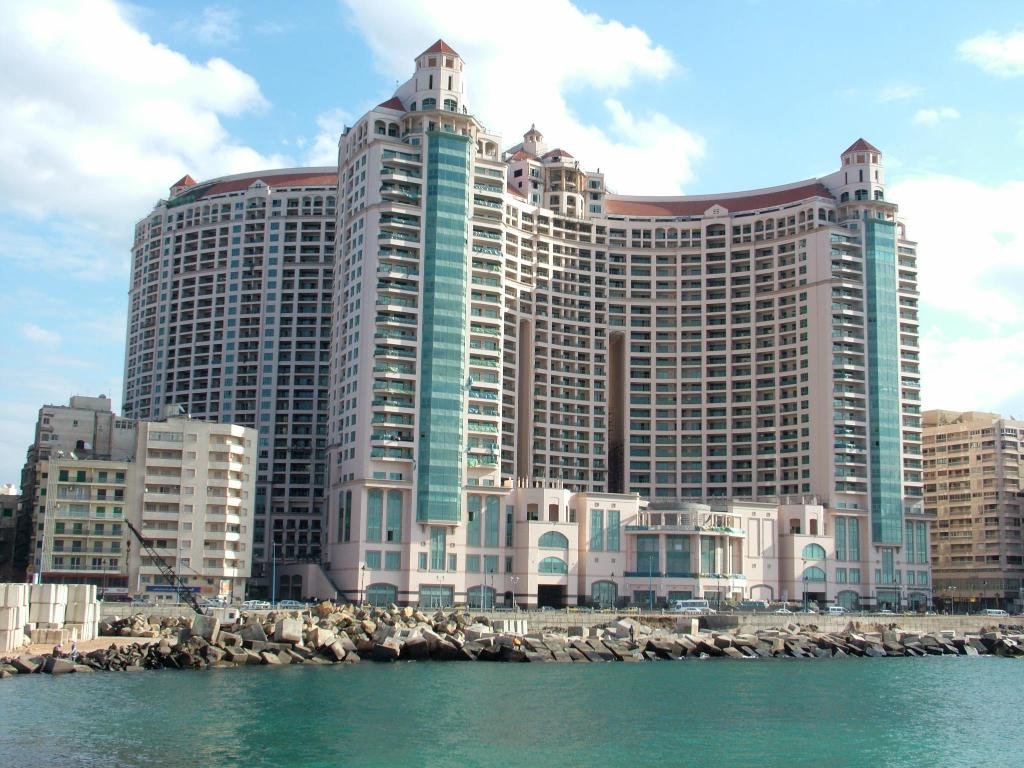
Four Seasons Hotel Alexandria at San Stefano
With Egyptian underpinnings and a sleek waterfront setting, our resort-style Hotel embodies modern Alexandria and its unique cosmopolitan flare. On one side, the Mediterranean Sea glistens in the sun; on the other, a dynamic metropolis buzzes with life. Wake to welcome views of either side from your room’s balcony, then head for a stroll along our private beach tucked along a bay in the middle of the city. We’ll show you Egypt from a whole new perspective
Offering views of the Mediterranean, this luxury hotel is a 10-minute walk from the Royal Jewelry Museum and 9 km from the Library of Alexandria. The Lighthouse of Alexandria is 12 km away.
Elegant rooms and suites with chic decor provide flat-screen TVs, free Wi-Fi and minibars, as well as marble bathrooms and balconies with panoramic views of the city or the sea. The suites add living rooms and dining areas. Room service is offered 24/7.
Amenities include 4 refined restaurants, 3 sleek bars and a low-key cafe, plus a private beach, an outdoor pool and squash courts. Massages are offered in a lavish spa with an indoor pool and a fitness room.

Novotel Cairo El Borg
Overlooking the Nile river, this sophisticated hotel is a 14-minute walk from the Egyptian Museum, a 4-minute walk from Cairo Tower and a 12-minute walk from Tahrir Square.
Casual rooms and suites provide Wi-Fi access, satellite TV and minibars, plus en suite bathrooms, and tea and coffeemaking facilities. Some have sitting areas.
Amenities include a restaurant, an outdoor pool and a rooftop cafe, plus a trendy bar and meeting space. There’s also a gym and a hot tub.
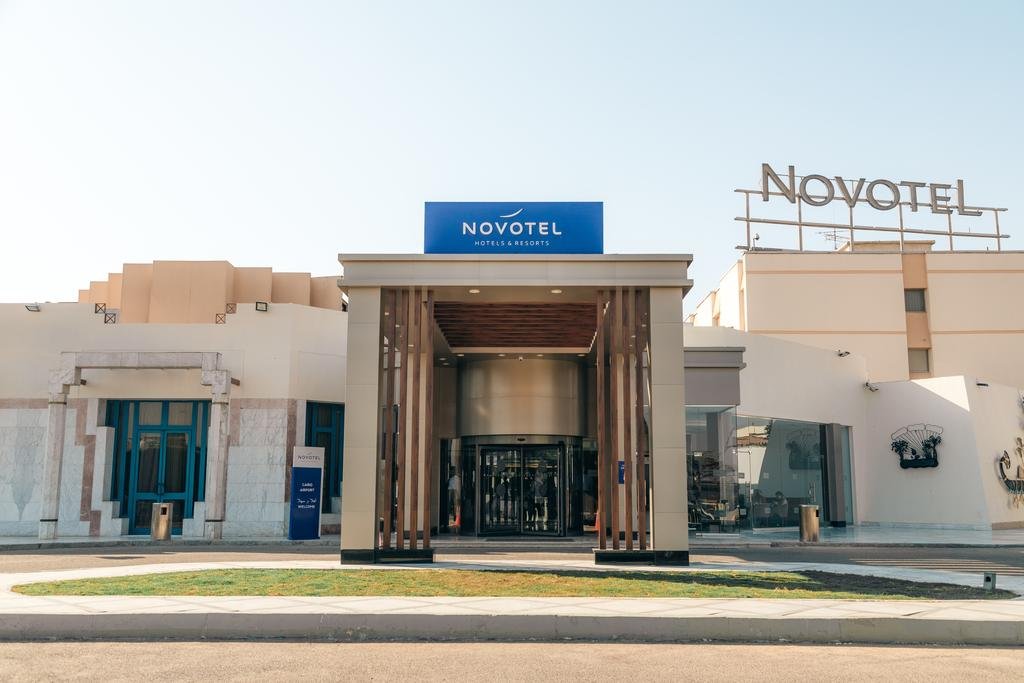
Novotel Cairo Airport
Less than 1 km from Cairo International Airport, this laid-back hotel is 10 km from Baron Empain Palace and 7 km from Our Lady of Fatima Cathedral.
Straightforward rooms offer free Wi-Fi, flat-screens, safes and desks, as well as minibars and tea and coffeemaking facilities. Suites include separate living areas. Room service is available 24/7.
For business events, there are 6 meeting rooms, and the International Convention and Exhibition Centre is just minutes away; for cultural pursuits, the incredible Pyramids and Sphinx are only 40 KM away. And for drinks or dining, the hotel offers a wide variety of cuisines in its 7 restaurants and bars. There’s even valet parking!
Novotel Cairo Airport location few minutes away from Cairo international airport and catch your flight without a hitch.
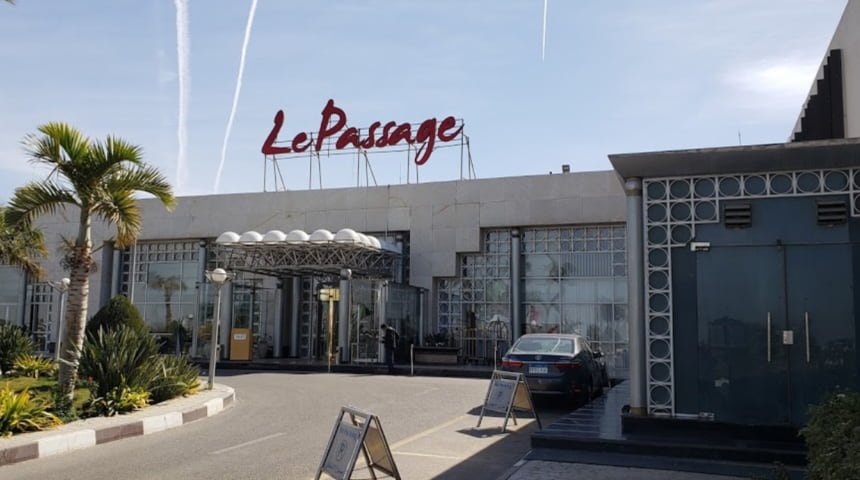
Le Passage Cairo Hotel & Casino
Next to Cairo International Airport, this upscale hotel surrounded by palm trees is 13 km from the Cairo International Convention Centre.
The hotel offers 420 fully equipped guest rooms elegantly furnished with your comfort and wellbeing in mind. You can unwind, relax and indulge in one of our 22 luxury suites and two Ambassador suites which will give you the true treatment of royalty.
Brightly decorated rooms have Wi-Fi, TVs and minibars, plus balconies, and tea and coffeemakers. Upgraded quarters offer access to a club lounge. Suites have separate living rooms; some add kitchens and dining areas. Room service is available 24/7.
There are 5 eateries, 2 bars and a bakery, plus a nightclub and a casino. Other amenities include an outdoor pool, a kids’ pool and a gym, plus a sauna, a steam room and spa services. Parking and breakfast are available.Free Wi-Fi

Radisson Blu Hotel, Cairo Heliopolis
This stylish hotel near Cairo International Airport
Experience style, comfort and exceptional service just 3 kilometers from Cairo International Airport at the Radisson Blu Hotel, Cairo Heliopolis. Immerse yourself in the city’s history at sites like the Great Pyramids and the Sphinx – both less than an hour away by car. Or, enjoy modern pastimes at nearby shopping malls, bars and golf courses.
Gorgeous hotel rooms and sophisticated dining options
Unwind in one of our elegant rooms or suites with upscale amenities, such as a daily newspaper and turndown service. Free high-speed Wi-Fi is available throughout the hotel.
Choose from a delicious assortment of Italian dishes at the renowned Filini Restaurant, where all meals are prepared fresh in an open kitchen. Prefer something a little lighter? Visit Gourmet House, where you can choose from a treasure trove of fine sandwiches and baked goods. You can also enjoy a cocktail in the atrium at 1122 Bar, or sip your drink by the pool at Terrace on 9.
City views, relaxing spa treatments and modern business facilities
There is also outdoor venues and special event packages
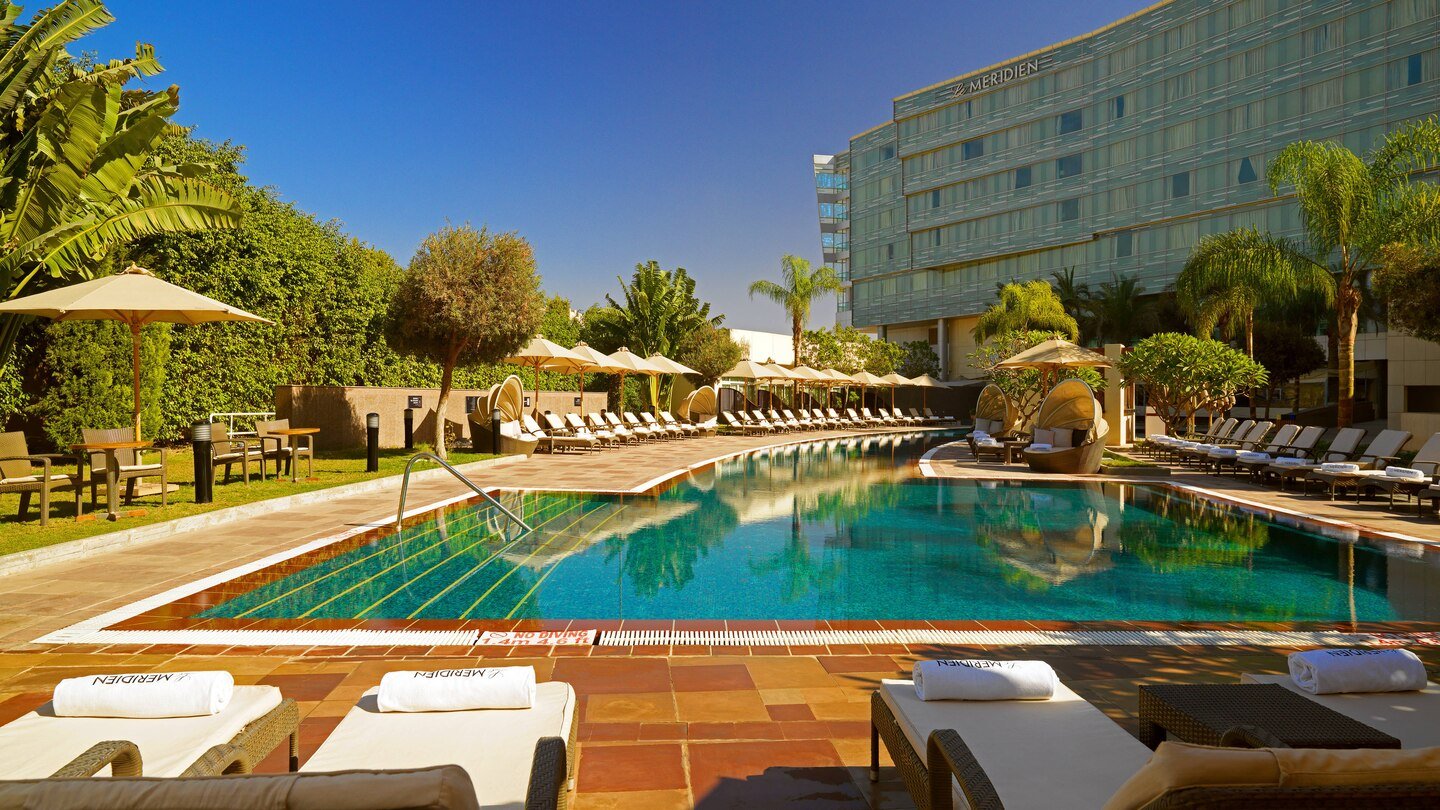
Le Méridien Cairo Airport
Awaken your sense of wonder when you stay at Le Méridien Cairo Airport, an upscale hotel on the Nile River in Egypt’s energetic capital. As the first and only hotel connected to Terminal Three of the Cairo International Airport, we offer a convenient pedestrian bridge with direct access to the hotel entrance. Step off the plane and treat yourself to a new wardrobe at Sun City Mall. Explore the Great Pyramids, visit the Sphinx or study artifacts from King Tutankhamun, all nearby. Afterward, return to our airport hotel for a cocktail by the outdoor pool or a workout at our fitness centre. If you are planning a destination wedding or corporate gathering in Cairo, Egypt asks about our versatile ballrooms and meeting rooms. Choose from several on-site hotel restaurants, serving zesty Lebanese dishes at Mezzeh and hearty burgers at the Live Sports Bar. After an eventful day, relax on one of our plush signature beds and watch the sunset views over the airport. Discover new heights at Le Méridien Cairo Airport.
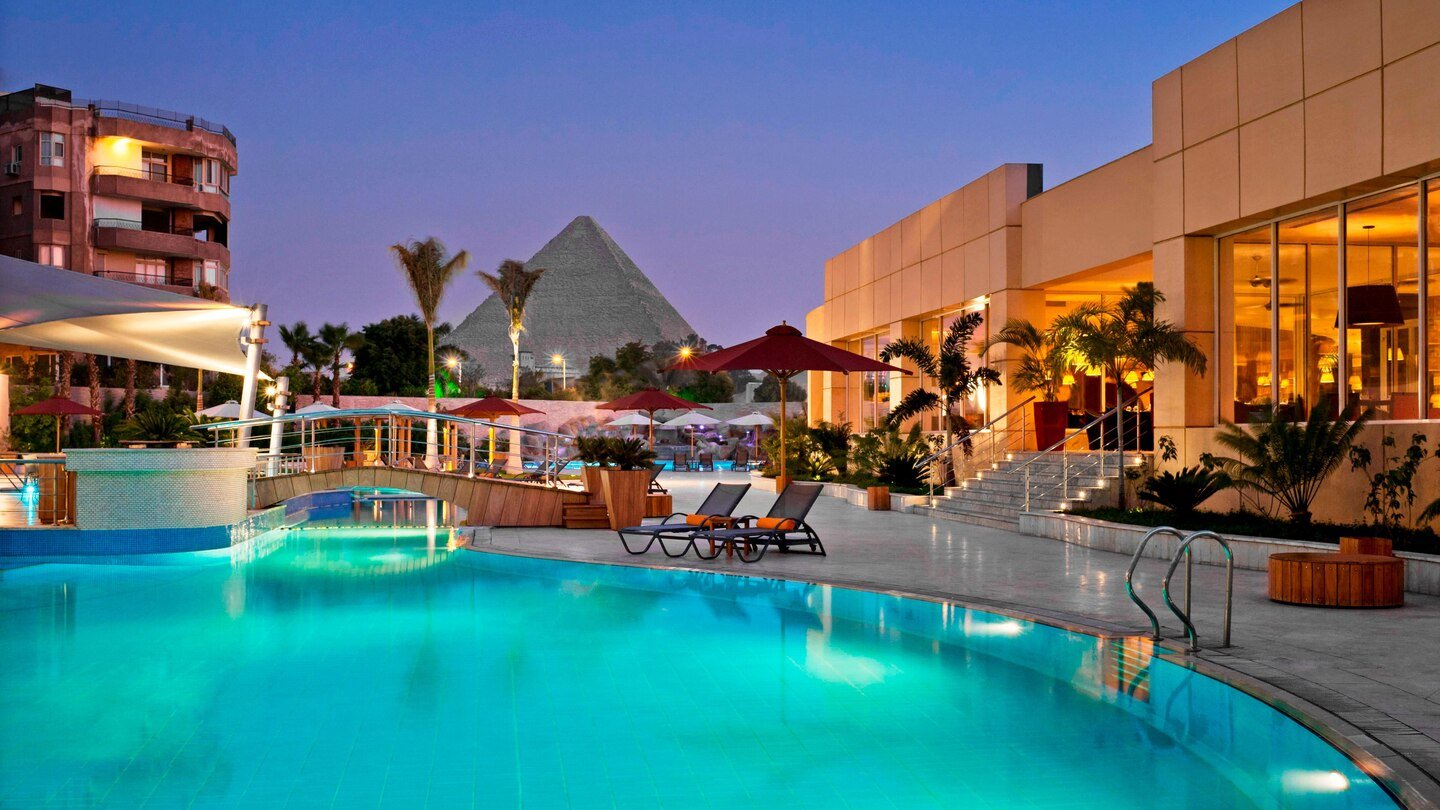
Cairo Pyramids Hotel
Just a step away from the most ancient civilization.
Footsteps away from the Great Pyramids of Giza, the Cairo Pyramids Hotel is where the glamorous history of Egypt and its world famous hospitality meet. The hotel is the perfect starting point for sightseeing, relaxation and business meetings alike, featuring elegantly appointed rooms, two swimming pools and a variety of bars and restaurants to choose from, all surrounded by lush gardens.
Both the Garden wing and the newly opened Pyramids wing offer guests a gracefully comfortable experience.
Facilities at Cairo Pyramids Hotel
Free WiFi
fitness area
meeting rooms
24 hour room service
central location
restaurant
bar
swimming pool
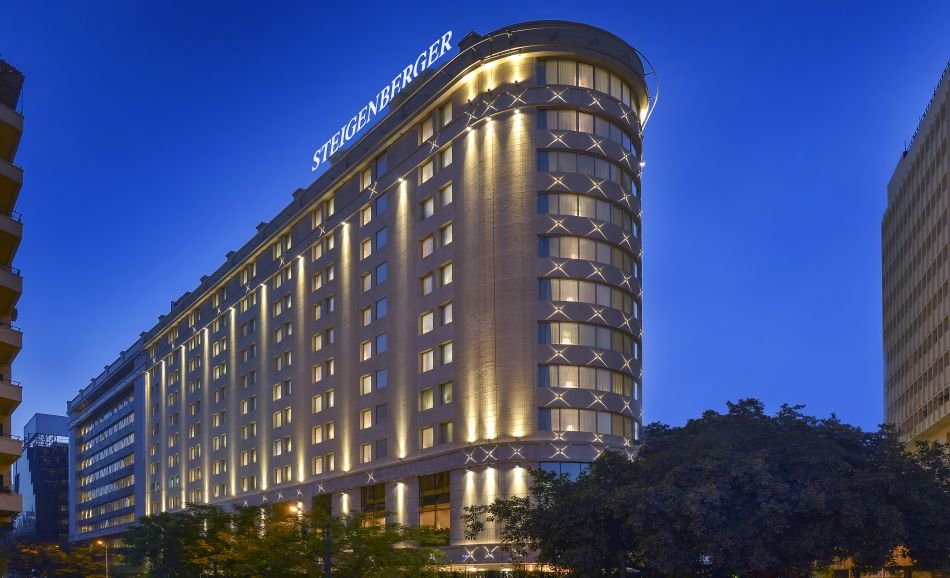
Steigenberger Hotel El Tahrir Cairo
The new Steigenberger Hotel El Tahrir is ideally located at the heart of Cairo down town within few minutes walking distance from the Egyptian Museum, Khan El Khalili and the Arab League building.
Cosy ambiance in Steigenberger El Tahrir
The hotel offers 295 modernly furnished hotel rooms and suites. Designed to meet business guests’ needs with free WiFi, 24 hour in-room dining/room service, an all-day dining offer, a lobby bar and on-site parking facilities.
Newly defind culinary highlights
Let us spoil you with culinaric delights in our restaurants & bars – enjoy oriental and international delights in the Downtown restaurant or cocktails and long drinks in the Cairo Lobby Bar.
Conference rooms are efficiently spread over one floor with 1.782 sqm with a main multi-purpose hall taking up to 300 guests, a foyer and 6 private meeting rooms.
To unwind, please visit our SPA & wellness area on the second floor next to the fitness center.
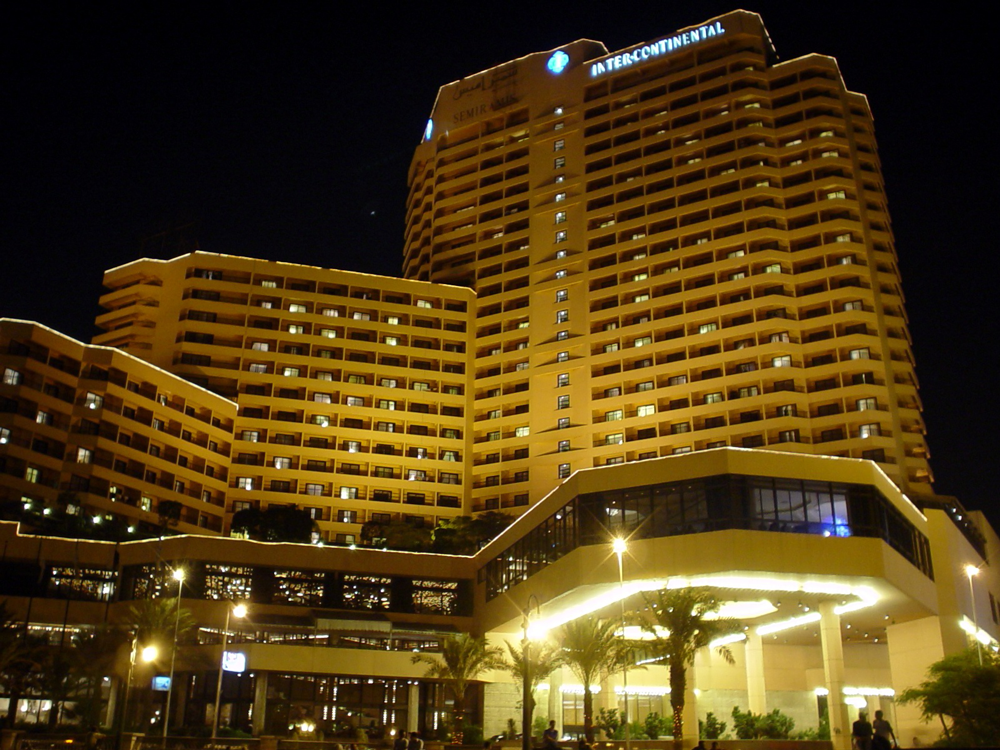
InterContinental Cairo Semiramis
Standing on the site of the historic Semiramis hotel, guests can enjoy modern luxury on the River Nile. This Cairo hotel features a 26 m2 rooftop pool and fine dining with exquisite cuisine for every taste. A selection of twelve restaurants and bars reflect contemporary design, with the Nile Terrace offering stunning views of the sunset over the Nile. Located in the heart of the city centre this hotel offers complimentary WiFi and is located next to the Egyptian Museum and bazaars of old Cairo.
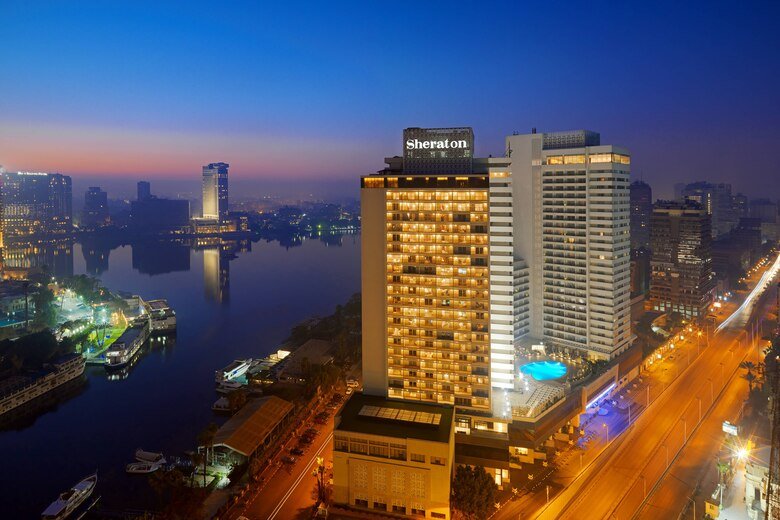
Sheraton Cairo Hotel & Casino
Located on the banks of the River Nile, Sheraton Cairo Hotel & Casino offers effortless service and modern accommodations in the heart of Cairo, Egypt. Select from a variety of dining options, including 24-hour room service and our popular Italian restaurant. If you are looking to host a business meeting or special event, our hotel has an array of inspiring and flexible spaces, complete with the latest technology and bespoke planning services. Take a dive into our outdoor pool or get active in our 24-hour fitness center. Rejuvenate in our spa with its wide variety of treatments. All of our rooms and suites offers stunning views of Cairo, some featuring private balconies. Upgrade to our Club Level hotel rooms with lounge access, or to one of our suites with separate sleeping and living accommodation. Some of our thoughtful amenities include free Wi-Fi and bottled water.
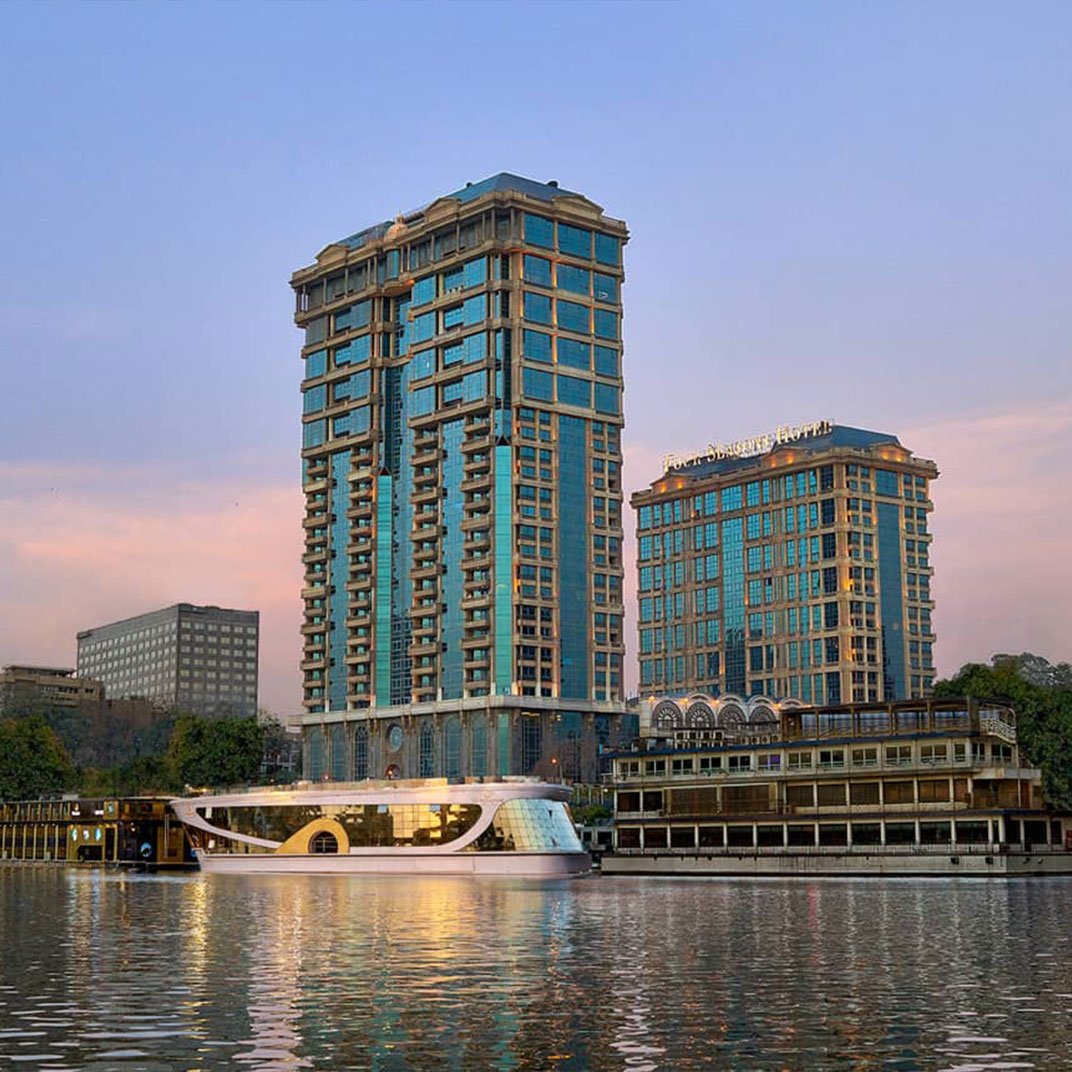
Four Seasons Hotel Cairo at The First Residence
Flanked by zoological gardens and the western bank of the Nile, our address in Giza’s prestigious First Place complex puts you in the centre of it all. Catch a glimpse of the river or the Great Pyramids from your room as you head out to explore the ancient wonders, or spend the day by the pool, indulging in an aromatic massage once reserved for Egyptian royalty. Or opt for shopping in the high-end boutiques at the First Mall or experience the best of gastronomy aboard our newly opened First Nile Boat, offering panoramic Nile views and brilliant international cuisine.
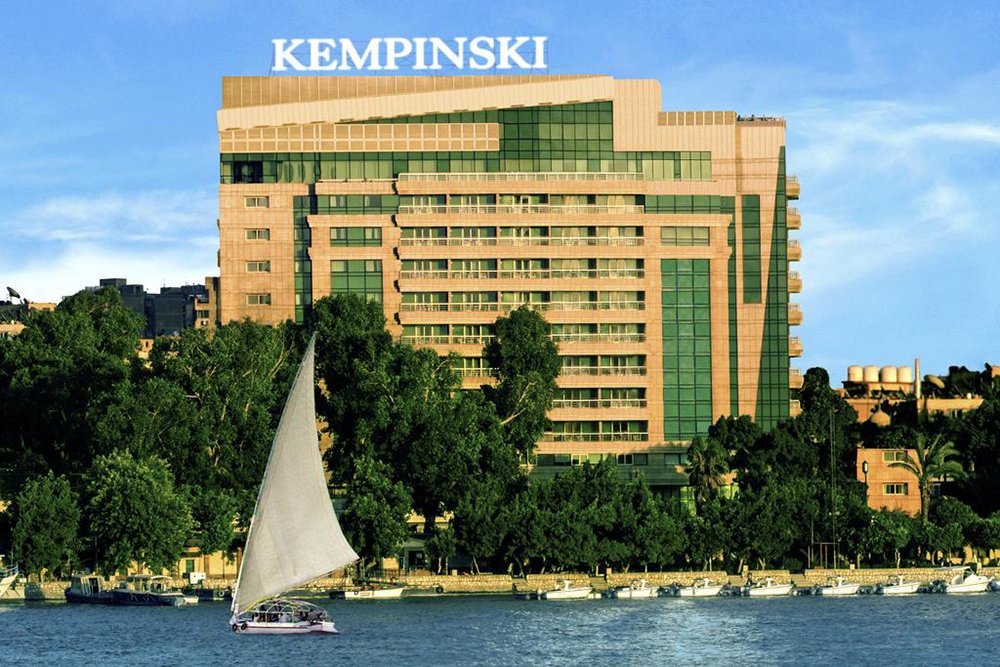
Kempinski Nile Hotel Garden City Cairo
THE LUXURIOUS HEART OF CAIRO
Located in the heart of Cairo, five-star Kempinski Nile Hotel offers guests an outstanding boutique experience on the banks of the Nile River.
Due to Kempinski Nile Hotel’s exceptional location in downtown, patrons are only miles away from Cairo’s attractions, such as the Pyramids of Giza.
Kempinski Nile Hotel provides a diversity of 137 rooms and 54 exclusive suites in a remarkable location. All the suites have their own private balcony for all types of guests – large groups, couples or solo travellers – to revel in the view of the Nile River while relaxing.
With Kempinski’s
accompanying benefits, such as culinary experiences at four restaurants and lounges, a leisure spa, a pool on top of the hotel with views of Cairo at the RoofTop, and a stylish fitness centre, all Kempinski Nile Hotel guests will encounter everything they could ever desire.
Kempinski White Glove Services has been implemented to ensure a healthy and safe environment for all our guests and employees worldwide.
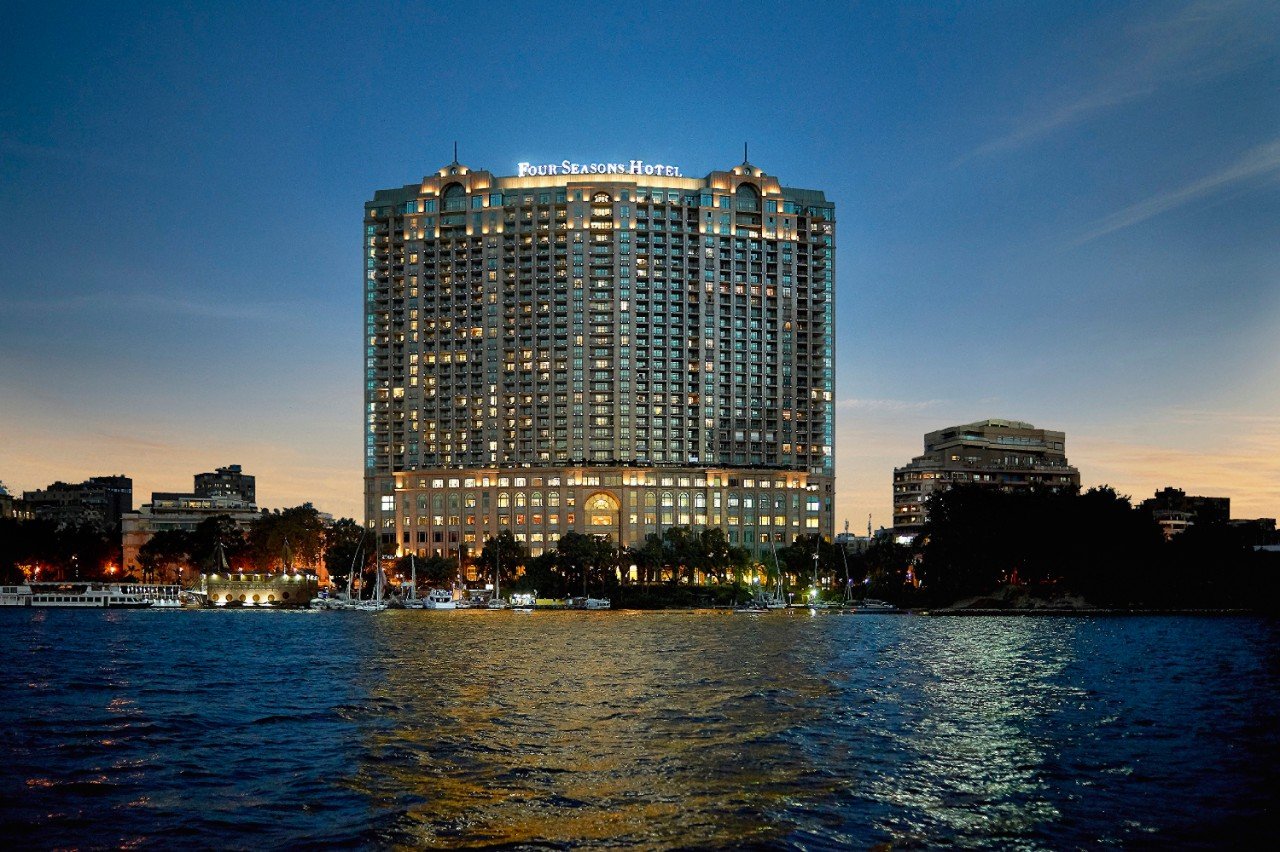
Four Seasons Hotel Cairo at Nile Plaza
Right in the heart of Cairo, flanking the eastern bank of the Nile, the Conrad is very strategically located to reach all significant sightseeing targets with ease.
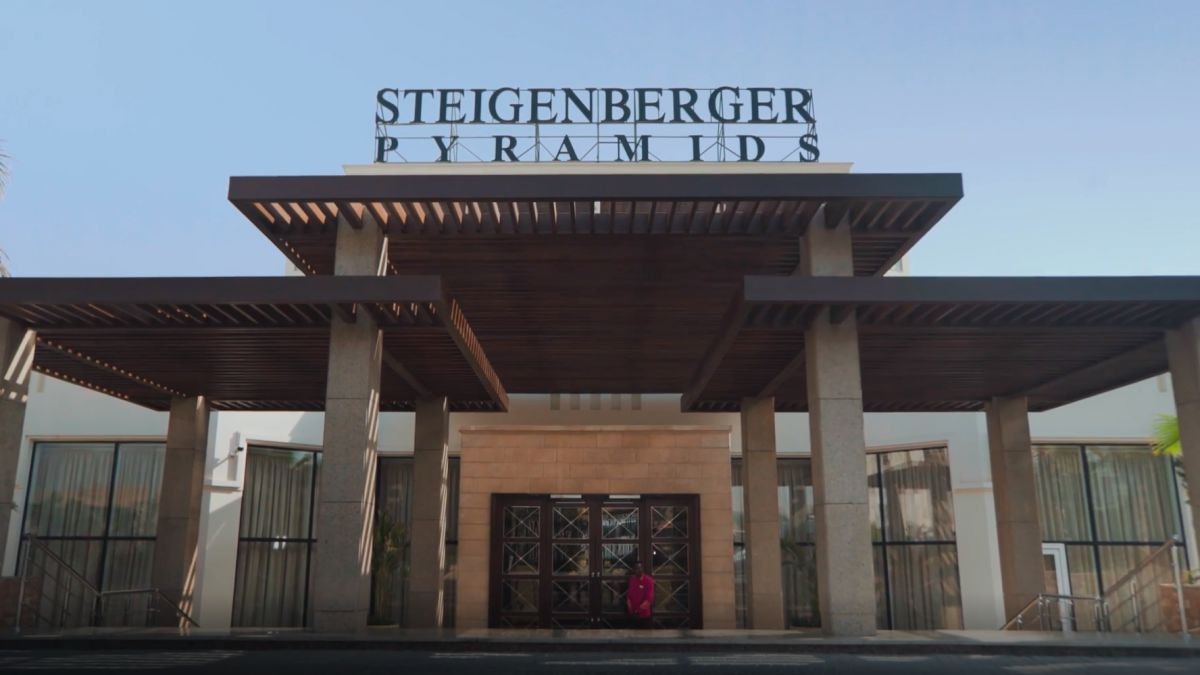
Steigenberger Pyramids Cairo
midst the Great Pyramids of Giza, historical landmarks and the Sphinx Airport, nestles the newly launched Steigenberger Pyramids Cairo hotel with its luxury hotel rooms. Explore the exceptional journey through history where Egyptian heritage meets luxurious European hospitality. The hotel is located just across the New Egyptian Grand Museum and is only 25km away from downtown Cairo. It is the idyllic hideaway for sightseeing and relaxation
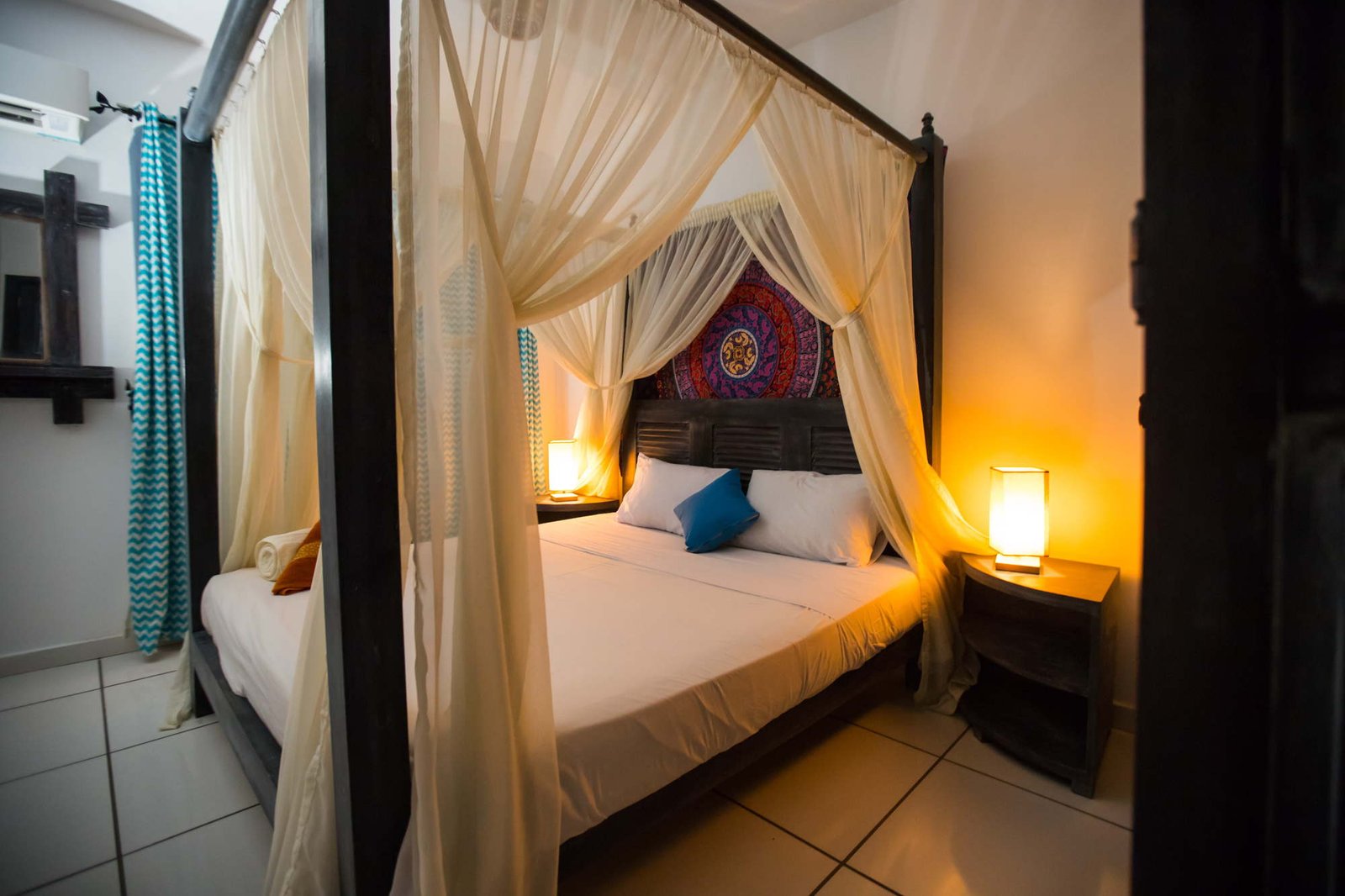
Pyramids Gem Plaza
Modernly built in the heart of Cairo Giza, with a touch of authentic style, in a quiet residential street with just a walking distance to the New Grand Museum, Great Pyramids and Shops, you will find our Pyramids Gem Plaza Residence. Designed in a way to be your home away from home with fully equipped […]

Le Riad Hotel de Charme
Within 200 m from Bab Zuweila gate,Le Riad Hotel de Charme has spacious Oriental suites with private balconies facing El Darb El Asfar. It has a rooftop garden with panoramic views of Cairo. Each unique suite at Le Riad Hotel de Charme is inspired by a theme from Egyptian history. They have a comfortable seating […]
Please visit https://visacentral.com/egypt-visa
Please note your passport should be valid for 6 months after the end date of your visa.
Egypt’s national airline is Egypt Air. Most major international airlines fly to Cairo.
Please check with your travel agent or your favourite travel website for more
information.
On Health – Bring a supply of your medication if you take any on a regular basis as well as a copy of your prescription. However, please be assured that your hotel or our staff will find you a specialized doctor should the need arise.
On Clothing – Upon visiting mosques, please dress conservatively, i.e. half/long sleeved shirt and no shorts. In public areas, this would also be our advice. However, in some touristic areas such as the seaside, it perfectly fine to wear shorts and sleeveless shirts. Please remember to remove your footwear upon stepping into a mosque.
On Photography – Taking photos inside many temples is restricted, so please follow the advice of your guide and the keeper of the sites. In some places, please be aware that the government will charge you for taking photographs. Due to new policies put in place by the Ministry of Tourism, cameras are not permitted at all in the Valley of the Kings. Please exercise caution and respect when taking photographs of anything other than tourist sites. It is forbidden to take photographs of the police, anything of a military nature or indeed bridges, airports and public works. Respect should be given to Egyptian women, use discretion. Always ask permission before taking photos of people and expect to be asked for a tip in return.
Always carry local currency as it will make your life easier, especially when paying for groceries, taxis, touristic venues, museums and souvenirs. In big shops, restaurants and hotels you may use your credit cards.
On Tips – If you feel generous enough to tip one child, then expect to be followed by a hoard of others expecting to be tipped as well. Make sure you have a lot of small bills for such ventures as tipping is sort of expected and even the smallest bill (one pound) will be welcomed.
On Transportation – Taxis are a problem as they do not have a counter and pricing can be very tricky. Best is to use Uber or Careem or else have your hotel get you a cab and negotiate the price before you go on your ride.
In general, always take a bottle of water on your expedition. The heat will get to you.
On the Egyptian Language- Learn the basic words: La’ (no) and shukran (thank you). You will be needing them.
On Dining Out, first time travelers are at a loss. It is best to seek out a hotel chain or a well-reviewed restaurant (ask around if you can) then you can be assured to get good, clean food. The price will be worth it. Never drink tap water! Wash and shower with it, but do not drink it.
On independent travel, for a first timer it is not advised. It much better to take a guide. You don’t need to book a package tour, groups can be arranged here. First and foremost, prepare yourself for a culture shock. Many seasoned travelers arrive and find it is unlike any other country they have previously visited.
On Organizing your Trip – Alone or in a couple or with friends and you wish to organize everything yourself, please let the hotel know of your plans before leaving. Should you get lost, the hotel will be able to act on your behalf. Also arm yourself with hotel address and telephone number, always, as you may need it. Be aware that you might be ripped-off. Like many tourist destinations, Egypt has its “wolves”, preying on unsuspecting, trustful travelers. Often the total cost will be more than if you had arranged it through a travel agent or your hotel and a lot less enjoyable.
The ones recommended are: Yellow Fever (common to most parts of Africa), Tetanus and Hepatitis. Otherwise, just take the usual precautions when travelling to hot parts of the world. Drink bottled water, avoiding ice and unless you are in a well-known hotel and restaurant, avoid eating uncooked greens. Avoid roadside food stands. Bring a good insect repellent as the evenings might be full of mosquitoes. At all cost, avoid contact with street dogs, rabies is still a risk in Egypt. Make sure you have condoms on you, they are also available in all pharmacies. Carry a small medical kit for your needs, with painkillers and diarrhea tablets at hand at all times. We also advise you to carry a travel insurance.
It has never been a problem, however you have to put up sometimes with annoying verbal harassment and this happens to Egyptian women as well. The best thing is to ignore and go on. It can sometimes get really irritating but reacting does not work. There is nothing forbidden in Egypt. You do not need to cover up or anything of the sort, yet to avoid drawing unnecessary attention to yourself, do please cover your shoulders and cleavage and do not wear shorts. It is just a matter of feeling comfortable and fitting in. Best footwear are sneakers as there is a lot of walking and it is dusty and sometimes the streets are in poor condition and dirty.
The high-season is October to May, making June to September (the summer months and the hottest) the low-season and therefore prices are at their lowest.
Spend a couple of nights in Cairo, take the sleeper-train to Aswan, spend another two nights there while visiting Abu Simbel and the Philae Temple, maybe Kom Ombo too. Then you can take a cruise down the Nile to Luxor, spend two nights visiting the Valleys of the Kings and Queens and the Karnak Temple Complex. Then you can return to Cairo and from there head to a Red Sea resort, either on the Sinai Peninsula or the coast, for a few nights.
Even though we arrange tours… the best BUDGET way is to do it yourself.
It is easier to sit back, have someone make all arrangements for you and just zip, worry-free from place to place (and some people wouldn’t do it any other way; it is a vacation after all LOL). But if you’re willing to put in the work, are flexible, easily adaptable, easy going and you’re willing to deal with haggling etc. it is not impossible to do Egypt without an operator.
In 10 days you can definitely visit three cities. You can even add Aswan in there. For most first-time visitors, 2 days in Cairo is enough. It is an overwhelming city, especially if you’re going about on your own.
If you’re going to do this yourself, I suggest at least securing ground transportation for the day. That can be a hired private car or taxi but you don’t want to be wasting time flagging down and haggling with taxis at every turn. Having pre-arranged transport will take lots of the hassle out of doing things yourself. Having a good guide book is essential but if you can, book a guide or two to break up the monotony and really help with understanding the sites and bringing them to life. There are many good budget hotels in Luxor, Cairo and Aswan, which can be booked on sites such as hostelworld.com. You pre-pay 10% of the booking when it’s made and then pay the rest on arrival. The hostels do tours as well.
If you’re a student, be sure to bring your ISIC card for 50% discount on tickets to the sites.
If you decide you need help arranging all or part of the trip, don’t hesitate to contact us.
The best time to visit Egypt is from October to May. It is the peak travel season, temperatures are milder though comparatively warmer than in the northern hemisphere. This is our High-Season with its two busiest periods: the Christmas/New Year period and the Easter Period, whereby hotels and cruises will put their prices up. This can mean that some hotels become really expensive, so making your reservations very early, even for the budget hotels, is strongly advised. The other 4 months are the low-season so to speak. May to September are the height of Egyptian summer, with very high temperatures, especially in Upper Egypt (Luxor and the southern parts of the country). However, this is the time for you to see Egypt in virtual peace and quiet, giving you the advantage of seeing the sites without any hassle either from school children or crowds of tourists.
Egypt offers a wide variety of 3-star hotels. The prices range from $12 to $20 per person per night in a double room. I would suggest you check hotel directories for rates and locations. Backpacker services are not popular in Egypt, although a few are available.
No comments on this tour so far:
$Loading...
16 Days / 15 Nights







